10 TED Talks on Education

Are you ready to discover your college program?
So we all know that education in America has its fair share of problems (understatement alert). Some of these problems are sociocultural, others are economic. Some problems are practical and others still are philosophical.
In the face of these numerous and mounting challenges, elected officials and lawmakers have been short on meaningful solutions. It makes you wonder if perhaps the biggest problem with our educational system is that solutions don’t always come from the smartest of folks. Feel fee to jump to the defense of your district congressman or state senator at any time…Bueller? Bueller?
Ok. Moving on.
If you’re looking for solutions to education’s myriad problems from the smartest folks, most of them have delivered a TED Talk at some point. Technology, Entertainment, Design, or TED, is a set of global conferences operating under the tagline “Ideas Worth Spreading.”
In that spirit, here are a few education ideas from among TED’s nearly endless panel of featured speakers that we feel are worth spreading. Enjoy our first installment of 10 Awesome TED Talks on Education.

10 Awesome TED Talks on Education
1. do schools kill creativity by sir ken robinson.
Sir Ken Robinson gave this speech in February of 2006 and it has since been viewed more than 10 million times on YouTube and a remarkable 39 million times on the TED Talks website. That is more than enough time to arrive at the conclusion that the answer is probably “yes” to the titular question “Do Schools Kill Creativity?”
Robinson makes the argument that we need to rethink the fundamental premise by which we educate our children. Robinson is dry and hilarious in this insightful takedown of formal education as it exists to day. He argues that all children are born inherently creative and that school systematically squanders that creativity, and “pretty ruthlessly” at that. Robinson makes the powerful assessment that creativity should be viewed as equal in importance to literacy. Robinson also resolves that if you’re not prepared to be wrong, you’ll never come up with anything original. Nonetheless, schools train students to be frightened of being wrong, and of making mistakes. Robinson laments that many highly talented, brilliant, creative people are educated to believe their talents are not valued, and perhaps even that these talents are obstacles to success.
Robinson insists that we can’t afford to continue on this way, that we need to radically rethink our view of intelligence as something diverse, dynamic, and distinct.
2. How To Fix a Broken School? Lead Fearlessly, Love Hard by Linda Ciatt-Wayman
With 1.3 million views on the TED Talks website, and 87,000 views on YouTube, Cliatt-Wayman’s May 2015 Talk casts a blinding light on the reality facing students and educators alike in “low-performing” inner-city schools. As a graduate and principal of North Philadelphia schools, Cliatt-Wayman gives a stirring and personal speech, one that moved many in the audience to tears. Cliatt-Wayman charged that what we call low-performing schools are often not schools at all, that the chains on the doors, the darkened hallways and the half-empty classrooms do not imply places of learning.
Cliatt-Wayman shares her strategies as a principal for transforming dark, dangerous, and frightening North Philadelphia schools from havens for drugs, weapons and violence to havens for disincline, enrichment, and love. Her experiential wisdom makes for a poignant Talk, anchored by a few of the slogans that have produced meaningful change at her Strawberry Mansion High School (where it bears noting she was the fourth principle in four years).
Cliatt-Wayman advises that “If you’re going to lead, LEAD,” an attitude that contributed to changes large and small at her troubled school, from replacing lightbulbs and decorating bulletin boards to recasting the way the school day is scheduled and transforming the budget. She also told educators that eliminating excuses at every turn is the primary responsibility for leaders at struggling schools. Finally and fundamentally, she said that it is the job of educators to offer their students hope, undivided attention, unwavering belief in their potential, consistent expectations, and unconditional love.
3. Teaching the World Peace Game by John Hunter
Filmed in March of 2011, and viewed just under 1.3 million times on TED Talks, 228,000 times on YouTube, “Teaching the World Peace Game” provides an energizing demonstration of how we can use classroom time to cultivate students who will one day be leaders, innovators and decision-makers.
Public School teacher John Hunter is warm, funny and personable as he explains his extraordinary approach to stimulating interactive learning among gifted students. Hunter demos the multi-tiered, map-based gameboard—basically Risk on anabolic steroids—that he has used to engage students since the late 1970s. The goal of the game is to do nothing less than solve the world’s problems. Students are handed a planet and a list of encompassing crises—not unlike the world that they will eventually inherit from prior generations.
The class collaborates, debates and compromises on developing solutions for issues as far-reaching as ethnic tension, nuclear proliferation, environmental disasters, water rights disputes and basically the entire grab-bag of seemingly insoluble problems that they will one day be asked to solve. Indeed, John told the audience that he’d happily send his fourth graders to consult Al Gore because they succeeded in solving the problem of global warming in a single week.
Hunter demonstrates both how educators can excite the imagination of their students and how they can nurture the young minds that will eventually be required to shape our world for the better. What most fascinates about Hunter’s experience is the fact that his students ultimately manifested strategies in ways that no educator could possibly predict, suggesting that the best educational results come when students are allowed to arrive at their own answers and solutions.
Popular Online Programs
Learn about start dates, transferring credits, availability of financial aid, and more by contacting the universities below.
4. Our Failing Schools. Enough is Enough by Geoffrey Canada
In May of 2013, Geoffrey Canada delivered an impassioned talk that has been viewed 188,000+ times on YouTube and more than 1.5 million times on the TED Talks website. Canada levies an accusation that’s pretty hard to dispute, claiming that in spite of our long track record of educational failure, we’ve basically done nothing to improve our outcomes. From both a scientific perspective and a business perspective, Canada says that our approach to education simply doesn’t make sense.
We’re losing kids, we know we’re losing kids, and yet we simply don’t allow real educational innovation to occur. He asks the audience to imagine a world in which we took the same stagnating approach to technology as we did to education. Whereas we respond to failure in this sector by probing for yet greater achievement, the education business has failed to use science to improve its approach to children.
To much approval from the audience, Canada attests that what sets him apart from many education policy-makers is that he “actually likes kids.” In this spirit, he remarks just how strange it is that we spend billions of dollars on standardized testing, that we gather enormous troves of incredible data, and that we fail to use them to actually help students in either a timely or effective manner.
Canada urges that its time to try something different. He insists that we must keep innovating in education until we nail the science down. We cannot wait another 50 years to get this right. He warns that here is an educational cliff and that we are walking over it right this very second.
5. The Nerd’s Guide To Learning Everything Online by John Green
John Green’s Talk, from November of 2012, has been viewed roughly 2.8 million times on the Ted Talks website and does not appear to have been published on YouTube.
Green takes a little bit of time to get to the point. Fortunately, he does so in a decidedly engrossing fashion. Green analogizes the lifelong quest for knowledge to cartography. Learning, he explains, makes the map of your life bigger. When you begin learning, you may not know every location on the map but you do have an instrument that tells you where you’d like to go. As Green phrases it, you’ve seen the coastline but now you want to explore the land.
When we’re young—and to the extent that we manage to develop a love for learning in school—we get to be part of a physical community of learning. Green advises that as we age out of school, we often lose that level of engagement. He shows how online forums like YouTube are restoring our opportunity to be part of a fluid, active and dynamic learning community.
Green demonstrates the variety and intuition with which YouTube can teach and invite learning, all in real-time. Green notes that videos which aim to teach are not necessarily being viewed in classrooms but independently by individuals electing to be part of a learning community. The centerpiece of his Talk is the resolution that these virtual spaces have become, for a new generation of learners, the kind of communities we used to have as students, communities that allow us to continue following our own learning maps into adulthood.
6. The Key To Success? Grit by Angela Lee Duckworth
Filmed in April of 2013, viewed by roughly 1.6 million on YouTube, and by 8.5 million viewers on the TED Talks website, Angela Lee Duckworth’s Talk brings some level of scientific rigor to a character trait that has rarely been measured thusly.
Often millennials are disparaged for being soft and entitled. If this criticism has any basis in reality, Duckworth’s concise Talk is something today’s students and parents need to watch. Duckworth argues that we need to achieve a better understanding of students and learning from a motivational and psychological perspective. She contends that schools are only really effective at measuring I.Q. and asks if success in school and life require more than just being able to learn quickly.
More than social charisma, attractiveness, and intelligence, Duckworth’s experience and research led her to conclude that grit—day-in day-out hard work and determination—is the trait that most determines success. Measuring traits of grittiness among her own students, Duckworth learned that grittier kids—marathon runners rather sprinters—generally succeeded best, independent of talent and intelligence. In spite of just how determinant an impact grit has, Duckworth concedes that science knows precious little on the subject.
Accordingly, Duckworth promotes “growth mindset,” the belief that the ability to learn can change with one’s effort. In Duckworth’s findings, the fascinating trait that most differentiates gritty people from their softer counterparts is that they don’t view failure as a permanent condition. Duckworth admits that her remarks are brief because we simply don’t know much about grit. Her speech ultimately suggests itself as a starting point for improving our understanding of what might be a key determinant of success. Among TED Talks, Duckworth’s is brief but instructive.
7. Let’s Use Video to Reinvent Education by Salman Khan
Salman Khan’s Talk from March of 2011 doesn’t necessarily break any new ground. Instead it reaffirms that, at least in one regard, we are moving in the right direction. Even if schools aren’t taking the active steps to revolutionize education, at least technologists and web users are. Viewed roughly 900,000 times on YouTube and 4 million times on the TED Talks website, Khan’s Talk deals largely with the positive impact that web-based video-education can have on learners. Indeed, Khan scored his best laugh when he informed his audience that as a former analyst for a hedge fund, he wasn’t accustomed to doing something of social value.
But that’s exactly what happened when he started tutoring his cousin remotely. As part of the process, Khan began producing explanatory YouTube videos to accompany individual lessons and quickly found that his cousin preferred the videos to live instruction. Getting past the “backhanded” nature of that compliment, Khan discusses the ways that video learning can help to improve the individuality, accessibility, and comprehensibility of instruction. Rather than using video to supplement the classroom experience, Khan made a case for allowing video instruction to transform the way we approach classroom time.
Khan’s approach transposes the classroom and homework experiences. As teachers assigned his videos for self-guided after-school instruction, they found that classroom time was freed up for problem-solving, game-playing and innovation-building. Teachers also used this time to provide individual attention and in-class guidance to students while they completed assignments. Ironically, remarks Khan, the impact of replacing human instruction with video instruction was a humanization of the otherwise dehumanizing process of sitting in a classroom listening to a monolithic lecture. Khan’s presentation ultimately demonstrates that video instruction, properly dispatched, can be used to individualize learning outside of the classroom while transforming the in-class experience into something far more personal and stimulating.
8. Teachers need real feedback by Bill Gates
If you’ve ever seen Bill Gates speak, then you know this one isn’t breathtakingly exciting. It does, however, inform on a major shortcoming in our educational system, and one that may help to explain why so many other countries outperform the U.S. in math, science and reading. Filmed in March of 2013, Gates’ Talk has been viewed roughly 293,000 times on YouTube and just under 2 million times on the TED Talks website.
Gates laments that teachers receive woefully inadequate feedback on how to improve their practice. The Microsoft magnate argues that the system in place is unfair to teachers and is consequently unfair to students.
Gates diverges with a brief video featuring a teacher who uses a camera to record her classroom lessons. Not unlike a quarterback, the teacher explains that she revisits her tapes following each lesson in order to dissect her own performance. Gates suggests that this method could be a pathway to providing teachers with real-time diagnoses on their performance and could ultimately help schools develop the tools they need to act on these diagnoses. Again, this won’t be the most entertaining TED Talk you’ll ever watch (and the visual aids just scream Windows ’98), but Gates is right. Teachers need feedback that’s actually designed to help. The real value of this Talk is that a person of visible influence is making that case.
9. Mathematics and Sex by Clio Cresswell
If you’ve just finished with the Gates Talk and you’re looking for something a little more…stimulating…this one is your next logical stop. More than 3.6 million YouTube viewers have indulged their curiosity in mathematics since Cresswell delivered her April 2014 Talk.
Full disclosure, this isn’t as much about sex as how sexy math can be, whether it’s used to detect inconsistencies in how people report their sexual activeness or in designing the perfect piece of chocolate. Cresswell draws playful connections between sexuality and mathematics, two natural conditions which transcend human culture, in order to demonstrate the fact that mathematics can provide new insight and understanding into all things around us.
The value of Cresswell’s presentation is in its appeal to those who are not of an inherently mathematical disposition. She reveals just how fascinating and all-encompassing mathematics are, and just how scintillating they can be.
10. Why Some of Us Don’t Have One True Calling by Emilie Wapnick
This talk centers around the oft-posed question, “what do you want to be when you grow up?” Wapnick’s Talk has been viewed 261,000+ views on YouTube and 2.7 Million on the TED Talks website since being delivered in April of 2015.
The troubling implication of Wapnick’s leading question is that we are raised to believe that we have no recourse but to choose a single path of personal and professional development. This question, which is innocent and entertaining when we’re young but which imposes stress and insecurity as we grow older, implies that we each have one great thing that we are meant to do while we’re here on this earth and that we have to figure out what that thing is and devote our lives to it.
But what of those who have many interests, whose passions and intelligences can’t be bottled as a single elixir? Wapnick calls these individuals “multipotentialites.” For those who have been instructed that they must pursue a single true calling, Wapnick says its easy to see multipotentiality as a flaw to be overcome but she argues that multipotentialites have superpowers, among them idea synthesis, rapid learning, adaptability.
We need creative thinkers to tackle the world’s problems, Wapnick argues. Accordingly, says Wapnick, we should all be pursuing careers based on how we’re wired. She advises “embrace your inner-wiring, whatever that may be. If you’re a specialist at heart, by all means specialize…To the multipotentialites…embrace your many passions, follow your curiosity down those rabbit holes, explore your intersections.”

Best Online Colleges of 2024
Online college has made accessible education a reality for many. Discover what online colleges do best and what programs you can choose from.

Best Accelerated Online Bachelor’s Degrees

Best Online Colleges to Start Anytime
Take the next step toward your future with online learning.
Discover schools with the programs and courses you’re interested in, and start learning today.

When education is not a given: 10 inspiring talks

“Each day, we took a different route so that no one would suspect where we were going,” says Basij-Rasikh in this powerful talk . “The school was in a house, more than 100 of us packed into one living room … We all knew we were risking our lives — the students, the parents, the teachers.”
When the Taliban fell in 2001, Basij-Rasikh’s father was thrilled that his daughters would be able to return to a traditional school. Still, says Basij-Rasikh, her family’s commitment to education for its daughters was not the norm. In Afghanistan, only 6 percent of women 25 or older received any formal education.
“I was very lucky to grow up in a family where education was prized and daughters were treasured,” says Basij-Rasikh, a recent graduate of Middlebury College in the United States. “During the Taliban years, I remember there were times I would get so frustrated by our life and always being scared. I would want to quit. But my father would say, ‘Listen, my daughter. You can lose everything you own in your life. Your money can be stolen. You can be forced to leave your home in a war. The one thing that will always remain with you is what is up here. If we have to sell our blood to pay your school fees, we will.’”
After college, Basij-Rasikh returned home and co-founded SOLA, the School of Leadership Afghanistan , the first boarding school for girls in Afghanistan. And yet sadly, getting an education is still a risk in the country . To hear a shocking story of one of Basij-Rasikh’s students whose family was targeted by terrorists — simply for sending their daughter to SOLA — watch this talk .
Here, more talks from people who went to great lengths to get, or give, an education.
| For Maasai girls, childhood is focused on preparing them for marriage, which will happen for many as early as age 12 or 13. With great reverence for her culture, Kakenya Ntaiya shares how she agreed to participate in a genital mutilation ceremony … in exchange for permission to continue her education. In this talk from TEDxMidAtlantic, she reveals why it was so important to her to go to college, become a teacher and start the first all-girls school in her village — all with the support of her elders. |
| Activist Shukla Bose admits that she and her compatriates with the Parikrma Humanity Foundation were mind-boggled when they first set out to educate the children of India’s slums — 200 million of whom should be in school but simply aren’t. In this talk from TEDIndia 2009, Bose explains how they put the statistics out of mind and went about their mission in the only way they could — by going one child at a time. |
| At TEDGlobal 2010, journalist Sheryl WuDunn takes us to rural China — where a star pupil was pulled out of school because her family couldn’t justify paying the $13 annual fee when she’d be working a rice paddy for the rest of her life. WuDunn shows how the donations for the education of this one student changed not only her life but her family’s and her entire village’s. A stirring talk about how education for the world’s women can lead to all of our advancement. |
| When he was 12 years old, Freeman Hrabowski begged his parents to let him march with Martin Luther King to demand an equal education to the white students in his hometown of Birmingham, Alabama. Today, he’s president of the University of Maryland, Baltimore County (UMBC), where he works to create an environment that helps under-represented students — specifically African-American, Latino and low-income learners — get degrees in math and science. In this talk from TED2013, he shares his school’s approach. |
| Why should educational technology be focused in schools that already have good teachers and resources? In this talk from LIFT 2007, Sugata Mitra shares why it is important to focus technology in schools in rural areas, slums and shanty towns — because that’s where it can have the most impact. Here, Mitra narrates his Hole in the Wall experiment in New Delhi in 1999, where a computer was embedded into a wall, and local children flocked to it — learning and teaching each other. |
| Neil Turok grew up in South Africa, where his parents were imprisoned for resisting racism. He spent his formative years as a refugee in Kenya and Tanzania. As Turok accepted the TED Prize in 2008, he shared the story of how he became interested in theoretical physics. The keys: being inspired by the wisdom of village children around him, many of whom didn’t have a formal education, and by a school teacher who posed the question: “What banged during the Big Bang?” |
| In the favelas of Rio or the slums of Kibera, traditional schools simply will not work because they depend on professionals and high-cost infrastructure — not to mention that their curriculums do not connect to the lives of students. At the TEDSalon London 2010, Charles Leadbeater looks at different approaches — like putting computers in community centers and serving up lessons through mobile phones. It’s education plus technology that is the key, Leadbeater shows. |
| Nobel Peace Prize winner Leymah Gbowee is haunted by the untapped potential of the girls she’s met on her travels across Liberia. In this talk, she tells some of these girls’ stories and calls on us all to foster the educational growth of girls — and to encourage the great inventions, innovations and breakthroughs they may be able to fuel if nurtured. |
- Subscribe to TED Blog by email
Comments (11)
Pingback: Buy Steroids USA
Pingback: Education Inspiration
Pingback: Do Teachers Get Paid "Peanuts"? - Issues affecting teachers - Page 14 - City-Data Forum
Pingback: Tutoring Strategies: Professional Development for Educators
Pingback: Meet Kakenya Ntaiya, who worked with her elders to found a school for girls in her Maasai village | Krantenkoppen Tech
Pingback: LibraryChat | Marvellous Monday Morsels
Pingback: Cuando la educación no es un hecho « Aprender a Enseñar
Pingback: Wizmo Blog » Blog Archive » When education is not a given: 8 inspiring talks
What the best education systems are doing right
Share this idea.
- Click to share on Facebook (Opens in new window)
- Click to share on Twitter (Opens in new window)
- Click to share on LinkedIn (Opens in new window)
- Click to share on Reddit (Opens in new window)
- Click to share on Pocket (Opens in new window)
- Click to share on WhatsApp (Opens in new window)

In South Korea and Finland, it’s not about finding the “right” school.
Fifty years ago, both South Korea and Finland had terrible education systems. Finland was at risk of becoming the economic stepchild of Europe. South Korea was ravaged by civil war. Yet over the past half century, both South Korea and Finland have turned their schools around — and now both countries are hailed internationally for their extremely high educational outcomes. What can other countries learn from these two successful, but diametrically opposed, educational models? Here’s an overview of what South Korea and Finland are doing right.
The Korean model: Grit and hard, hard, hard work.
For millennia, in some parts of Asia, the only way to climb the socioeconomic ladder and find secure work was to take an examination — in which the proctor was a proxy for the emperor , says Marc Tucker, president and CEO of the National Center on Education and the Economy. Those examinations required a thorough command of knowledge, and taking them was a grueling rite of passage. Today, many in the Confucian countries still respect the kind of educational achievement that is promoted by an exam culture.
The Koreans have achieved a remarkable feat: the country is 100 percent literate. But success comes with a price.
Among these countries, South Korea stands apart as the most extreme, and arguably, most successful. The Koreans have achieved a remarkable feat: the country is 100 percent literate, and at the forefront of international comparative tests of achievement, including tests of critical thinking and analysis. But this success comes with a price: Students are under enormous, unrelenting pressure to perform. Talent is not a consideration — because the culture believes in hard work and diligence above all, there is no excuse for failure. Children study year-round, both in-school and with tutors. If you study hard enough, you can be smart enough.
“Koreans basically believe that I have to get through this really tough period to have a great future,” says Andreas Schleicher , director of education and skills at PISA and special advisor on education policy at the OECD. “It’s a question of short-term unhappiness and long-term happiness.” It’s not just the parents pressuring their kids. Because this culture traditionally celebrates conformity and order, pressure from other students can also heighten performance expectations. This community attitude expresses itself even in early-childhood education, says Joe Tobin, professor of early childhood education at the University of Georgia who specializes in comparative international research. In Korea, as in other Asian countries, class sizes are very large — which would be extremely undesirable for, say, an American parent. But in Korea, the goal is for the teacher to lead the class as a community, and for peer relationships to develop. In American preschools, the focus for teachers is on developing individual relationships with students, and intervening regularly in peer relationships.
“I think it is clear there are better and worse way to educate our children,” says Amanda Ripley, author of The Smartest Kids in the World: And How They Got That Way . “At the same time, if I had to choose between an average US education and an average Korean education for my own kid, I would choose, very reluctantly, the Korean model. The reality is, in the modern world the kid is going to have to know how to learn, how to work hard and how to persist after failure. The Korean model teaches that.”
The Finnish model: Extracurricular choice, intrinsic motivation.
In Finland, on the other hand, students are learning the benefits of both rigor and flexibility. The Finnish model, say educators, is utopia.
Finland has a short school day rich with school-sponsored extracurriculars, because Finns believe important learning happens outside the classroom.
In Finland, school is the center of the community, notes Schleicher. School provides not just educational services, but social services. Education is about creating identity.
Finnish culture values intrinsic motivation and the pursuit of personal interest. It has a relatively short school day rich with school-sponsored extracurriculars, because culturally, Finns believe important learning happens outside of the classroom. (An exception? Sports, which are not sponsored by schools, but by towns.) A third of the classes that students take in high school are electives, and they can even choose which matriculation exams they are going to take. It’s a low-stress culture, and it values a wide variety of learning experiences.
But that does not except it from academic rigor, motivated by the country’s history trapped between European superpowers, says Pasi Sahlberg, Finnish educator and author of Finnish Lessons: What the World Can Learn From Educational Change in Finland .
Teachers in Finland teach 600 hours a year, spending the rest of time in professional development. In the U.S., teachers are in the classroom 1,100 hours a year, with little time for feedback.
“A key to that is education. Finns do not really exist outside of Finland,” says Sahlberg. “This drives people to take education more seriously. For example, nobody speaks this funny language that we do. Finland is bilingual, and every student learns both Finnish and Swedish. And every Finn who wants to be successful has to master at least one other language, often English, but she also typically learns German, French, Russian and many others. Even the smallest children understand that nobody else speaks Finnish, and if they want to do anything else in life, they need to learn languages.”
Finns share one thing with South Koreans: a deep respect for teachers and their academic accomplishments. In Finland, only one in ten applicants to teaching programs is admitted. After a mass closure of 80 percent of teacher colleges in the 1970s, only the best university training programs remained, elevating the status of educators in the country. Teachers in Finland teach 600 hours a year, spending the rest of time in professional development, meeting with colleagues, students and families. In the U.S., teachers are in the classroom 1,100 hours a year, with little time for collaboration, feedback or professional development.
How Americans can change education culture
As TED speaker Sir Ken Robinson noted in his 2013 talk ( How to escape education’s death valley ), when it comes to current American education woes “the dropout crisis is just the tip of an iceberg. What it doesn’t count are all the kids who are in school but being disengaged from it, who don’t enjoy it, who don’t get any real benefit from it.” But it doesn’t have to be this way.
Notes Amanda Ripley, “culture is a thing that changes. It’s more malleable than we think. Culture is like this ether that has all kinds of things swirling around in it, some of which are activated and some of which are latent. Given an economic imperative or change in leadership or accident of history, those things get activated.” The good news is, “We Americans have a lot of things in our culture which would support a very strong education system, such as a longstanding rhetoric about the equality of opportunity and a strong and legitimate meritocracy,” says Ripley.
One reason we haven’t made much progress academically over the past 50 years is because it hasn’t been economically crucial for American kids to master sophisticated problem-solving and critical-thinking skills in order to survive. But that’s not true anymore. “There’s a lag for cultures to catch up with economic realities, and right now we’re living in that lag,” says Ripley. “So our kids aren’t growing up with the kind of skills or grit to make it in the global economy.”
“We are prisoners of the pictures and experiences of education that we had,” says Tony Wagner , expert-in-residence at Harvard’s educational innovation center and author of The Global Achievement Gap . “We want schools for our kids that mirror our own experience, or what we thought we wanted. That severely limits our ability to think creatively of a different kind of education. But there’s no way that tweaking that assembly line will meet the 21st-century world. We need a major overhaul.”
Indeed. Today, the American culture of choice puts the onus on parents to find the “right” schools for our kids, rather than trusting that all schools are capable of preparing our children for adulthood. Our obsession with talent puts the onus on students to be “smart,” rather than on adults’ ability to teach them. And our antiquated system for funding schools makes property values the arbiter of spending per student, not actual values.
But what will American education culture look like tomorrow? In the most successful education cultures in the world, it is the system that is responsible for the success of the student, says Schleicher — not solely the parent, not solely the student, not solely the teacher. The culture creates the system. The hope is that Americans can find the grit and will to change their own culture — one parent, student and teacher at a time.
Featured image via iStock.
About the author
Amy S. Choi is a freelance journalist, writer and editor based in Brooklyn, N.Y. She is the co-founder and editorial director of The Mash-Up Americans, a media and consulting company that examines multidimensional modern life in the U.S.
- Amy S. Choi
- Editor's picks
- questions worth asking
- South Korea
- What makes a good education?
TED Talk of the Day

How to make radical climate action the new normal

6 ways to give that aren't about money

A smart way to handle anxiety -- courtesy of soccer great Lionel Messi

How do top athletes get into the zone? By getting uncomfortable

6 things people do around the world to slow down

Creating a contract -- yes, a contract! -- could help you get what you want from your relationship

Could your life story use an update? Here’s how to do it

6 tips to help you be a better human now

How to have better conversations on social media (really!)

3 strategies for effective leadership, from a former astronaut

Can trees heal people?
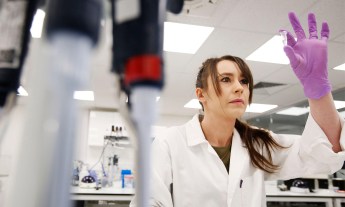
5 things scientists now know about COVID-19 -- and 5 they're still figuring out

Required reading: The books that students read in 28 countries around the world

What is the ideal age to retire? Never, according to a neuroscientist

- Communications/PR
- Curriculum & Instruction
- Equity & Inclusion
- Leadership/Professional Development
- Legislative Policy/Advocacy
- School Business/Human Resources
- School Climate & Culture
- Student Services/Special Education
- Technology/Digital Learning
- Women in Leadership
- School Crisis Response
- Mental Health and Wellness
- Partner Content
- Submit Content
22 Education TED Talks to Make You Think
These education-focused TED talks aim to answer the question: “As a country, how can we better inspire our students — and support our educators?”
Sal Khan: Let’s use video to reinvent education
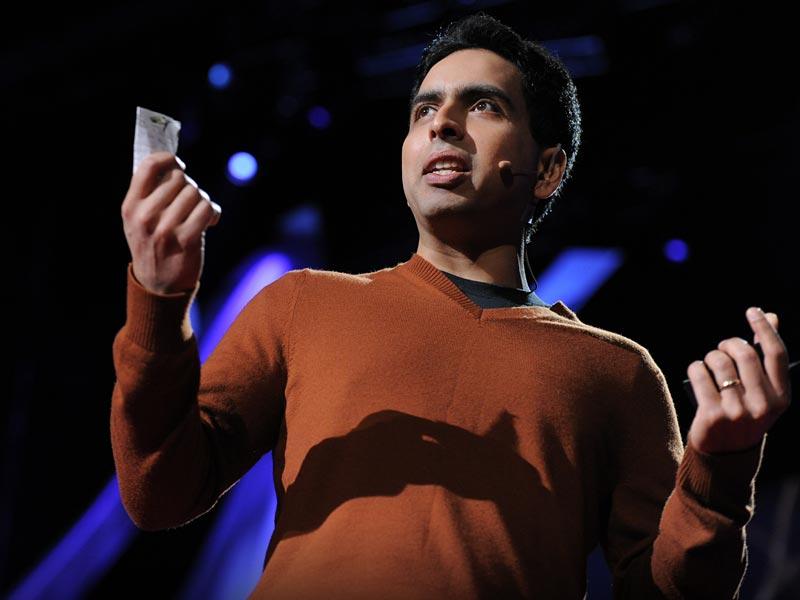
Salman Khan talks about how and why he created the remarkable Khan Academy, a carefully structured series of educational videos offering complete curricula in math and, now, other subjects. He shows the power of interactive exercises, and calls for teachers to consider flipping the traditional classroom script — give students video lectures to watch at home, and do “homework” in the classroom with the teacher available to help.
Liz Coleman: A call to reinvent liberal arts education
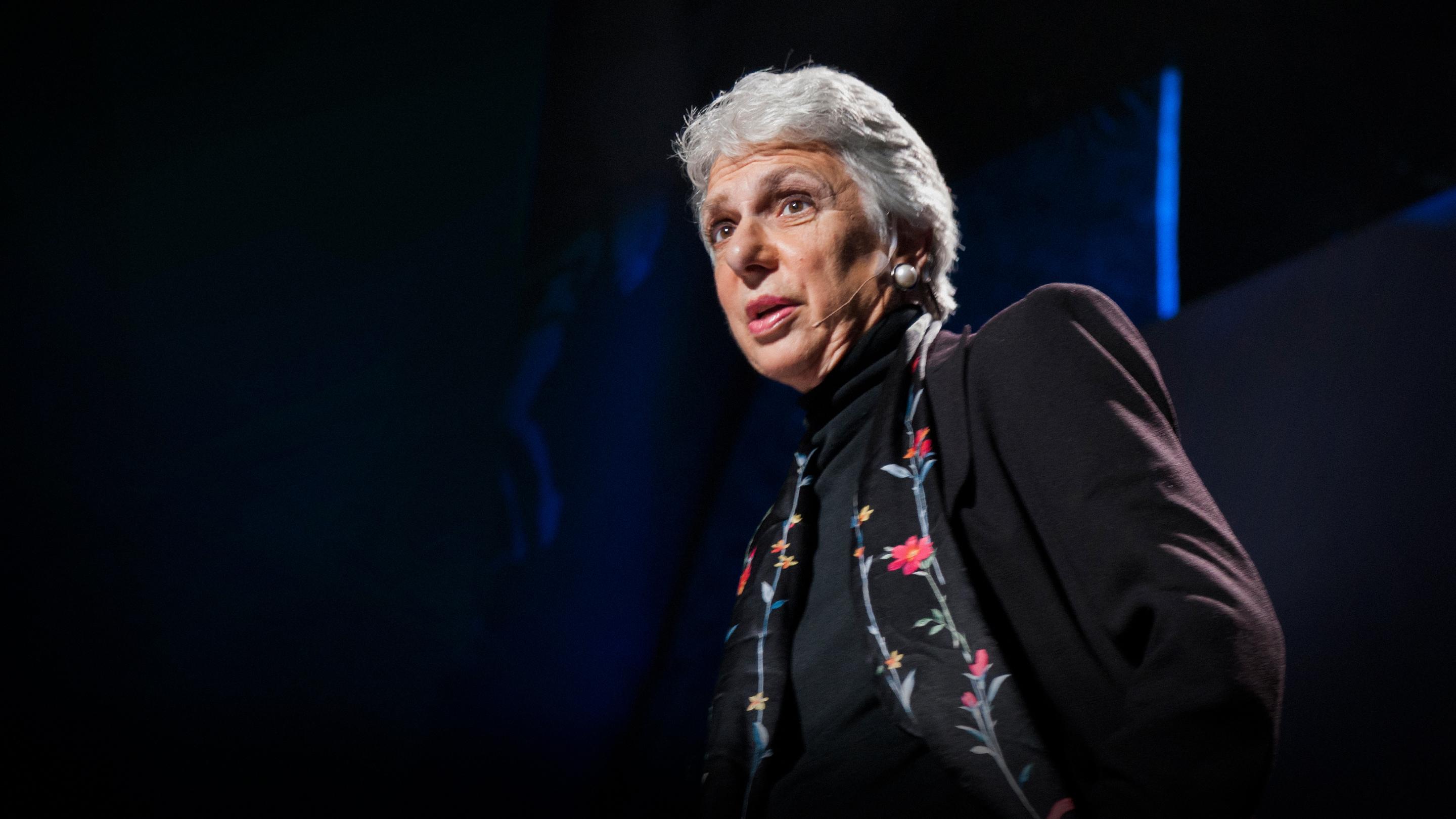
Bennington president Liz Coleman delivers a call-to-arms for radical reform in higher education. Bucking the trend to push students toward increasingly narrow areas of study, she proposes a truly cross-disciplinary education — one that dynamically combines all areas of study to address the great problems of our day.
Geoffrey Canada: Our failing schools. Enough is enough!
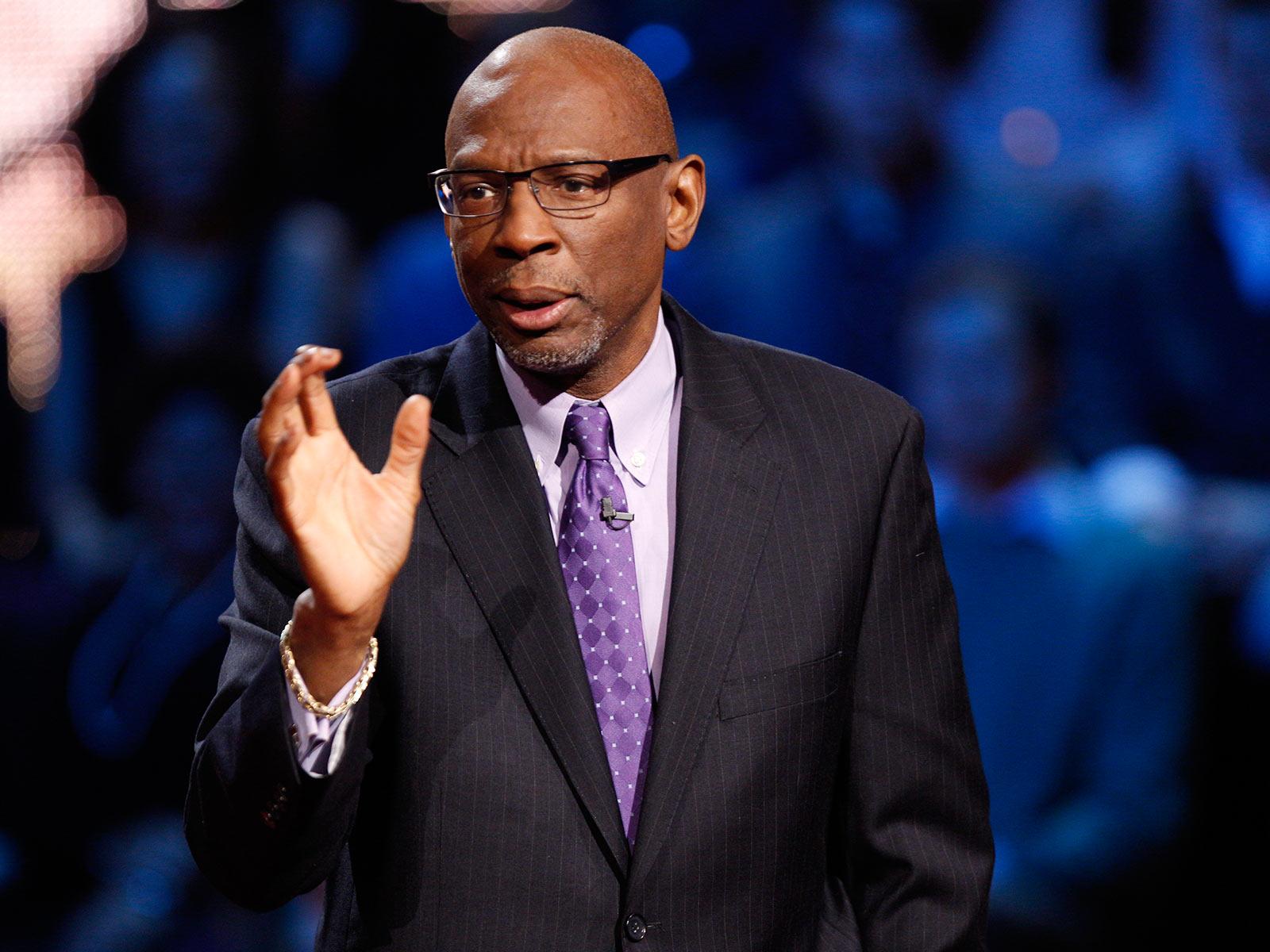
Why, why, why does our education system look so similar to the way it did 50 years ago? Millions of students were failing then, as they are now — and it’s because we’re clinging to a business model that clearly doesn’t work. Education advocate Geoffrey Canada dares the system to look at the data, think about the customers and make systematic shifts in order to help greater numbers of kids excel.
Michelle Obama: A passionate, personal case for education
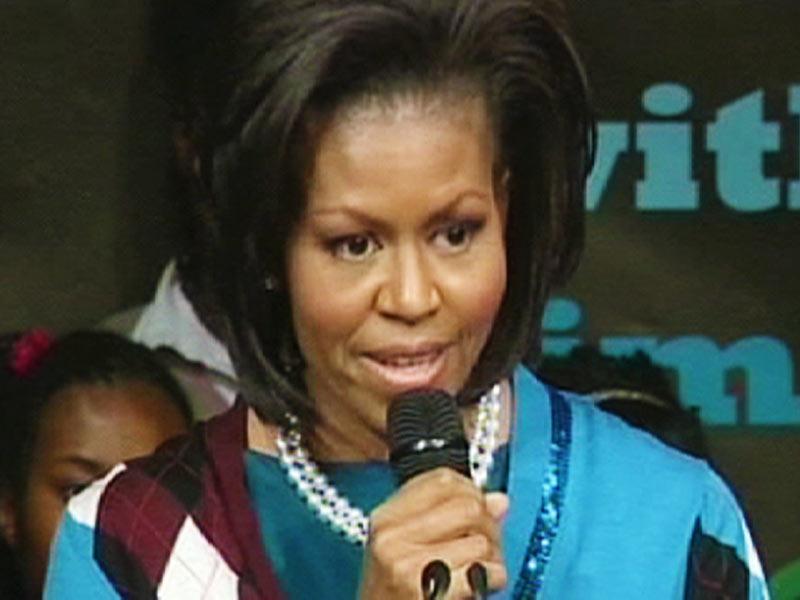
Speaking to an audience of students, US First Lady Michelle Obama reminds each one to take their education seriously — and never take it for granted. This new, brilliant generation, she tells us, is the one that could close the gap between the world as it is and the world as it should be.
Nadia Lopez: Why open a school? To close a prison
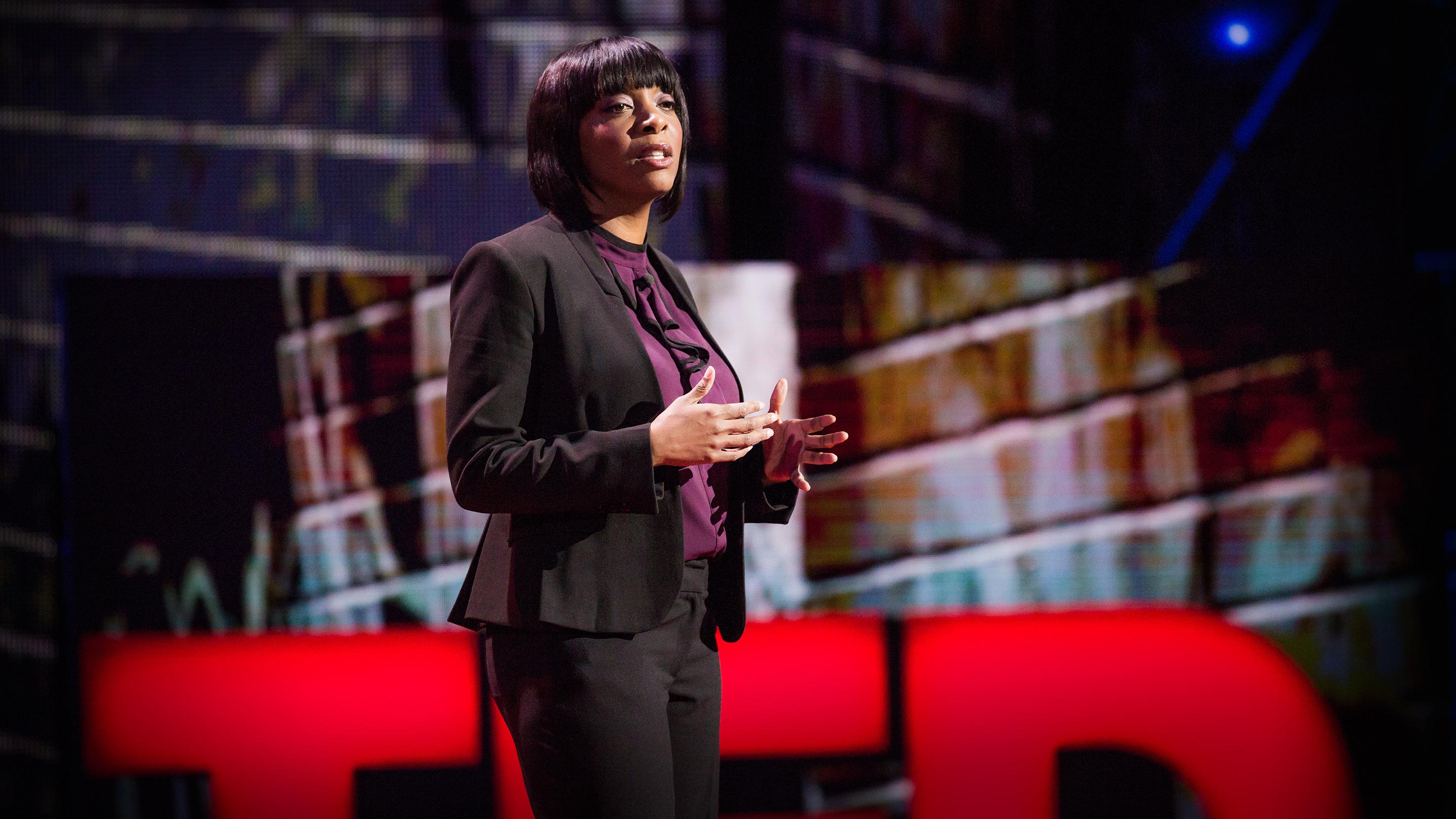
Our kids are our future, and it’s crucial they believe it themselves. That’s why Nadia Lopez opened an academic oasis in Brownsville, Brooklyn, one of the most underserved and violent neighborhoods in New York — because she believes in every child’s brilliance and capabilities. In this short, energizing talk, the founding principal of Mott Hall Bridges Academy (and a star of Humans of New York) shares how she helps her scholars envision a brighter future for themselves and their families.
Linda Cliatt-Wayman: How to fix a broken school? Lead fearlessly, love hard
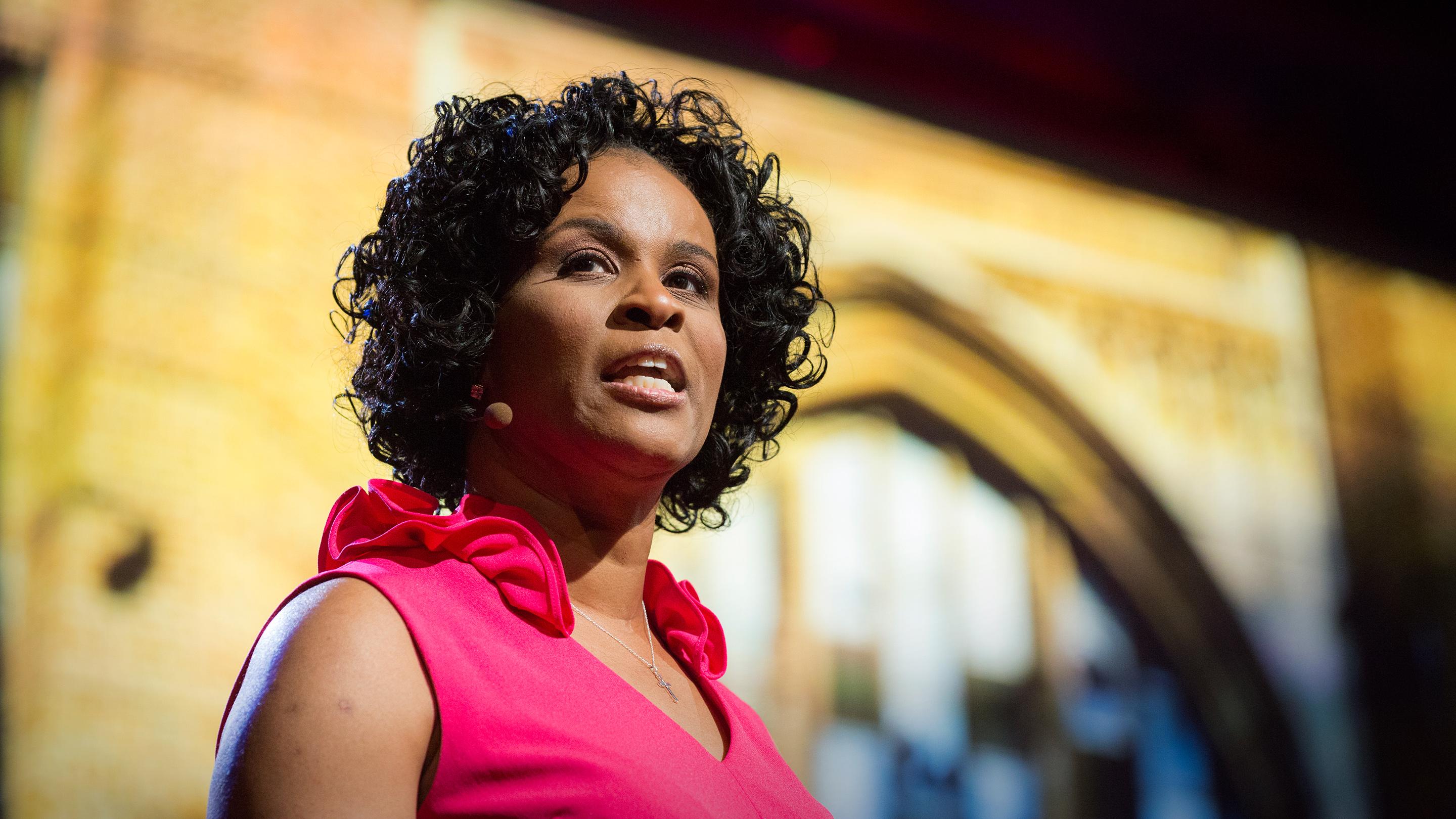
On Linda Cliatt-Wayman’s first day as principal at a failing high school in North Philadelphia, she was determined to lay down the law. But she soon realized the job was more complex than she thought. With palpable passion, she shares the three principles that helped her turn around three schools labeled “low-performing and persistently dangerous.” Her fearless determination to lead — and to love the students, no matter what — is a model for leaders in all fields.
Sugata Mitra: Kids can teach themselves
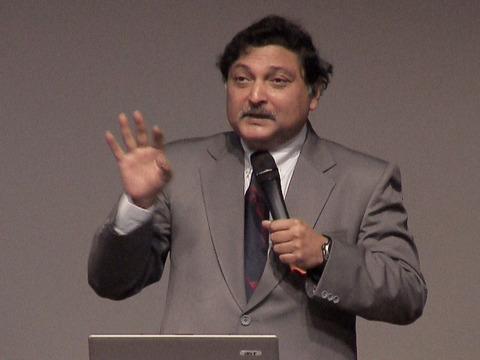
Speaking at LIFT 2007, Sugata Mitra talks about his Hole in the Wall project. Young kids in this project figured out how to use a PC on their own — and then taught other kids. He asks, what else can children teach themselves?
Sugata Mitra: The child-driven education
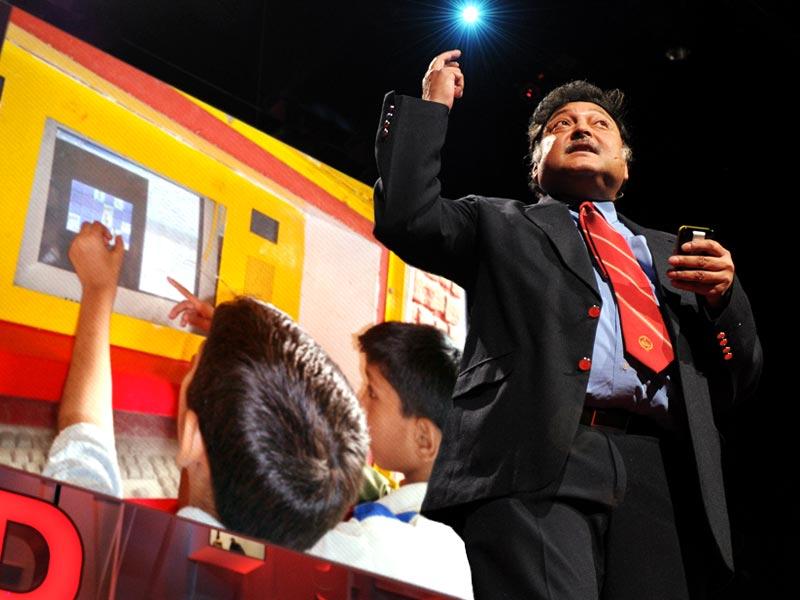
Education scientist Sugata Mitra tackles one of the greatest problems of education — the best teachers and schools don’t exist where they’re needed most. In a series of real-life experiments from New Delhi to South Africa to Italy, he gave kids self-supervised access to the web and saw results that could revolutionize how we think about teaching.
Bill Gates: Mosquitos, malaria and education

Bill Gates hopes to solve some of the world’s biggest problems using a new kind of philanthropy. In a passionate and, yes, funny 18 minutes, he asks us to consider two big questions and how we might answer them. (And see the Q&A on the TED Blog.)
Ken Robinson: Changing education paradigms
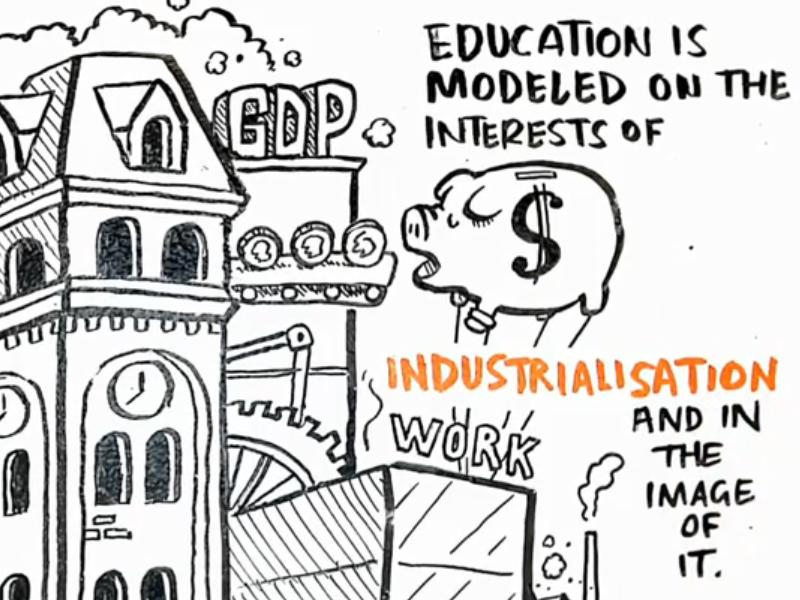
In this talk from RSA Animate, Sir Ken Robinson lays out the link between 3 troubling trends: rising drop-out rates, schools’ dwindling stake in the arts, and ADHD. An important, timely talk for parents and teachers.
Charles Leadbeater: Education innovation in the slums
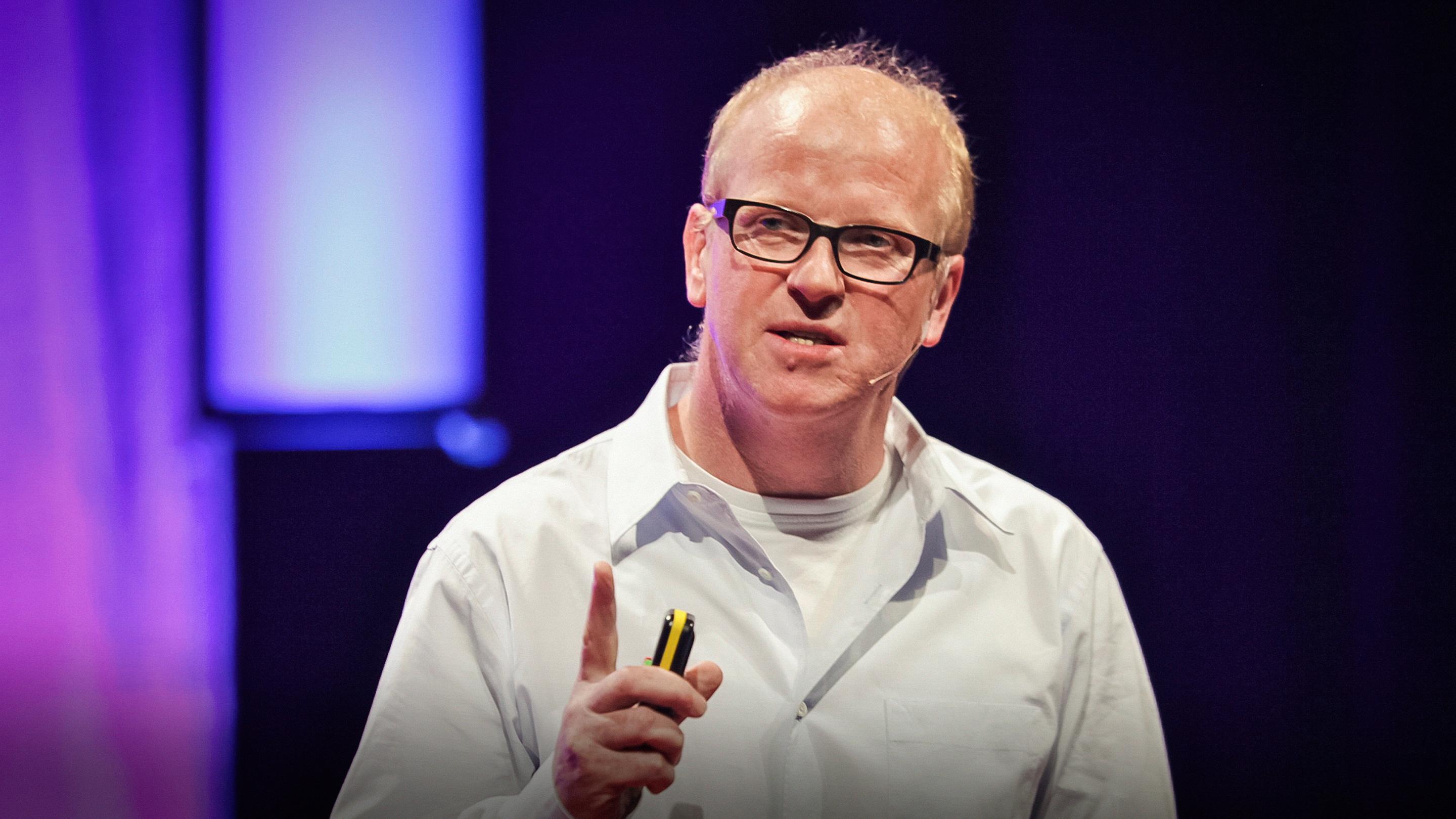
Charles Leadbeater went looking for radical new forms of education — and found them in the slums of Rio and Kibera, where some of the world’s poorest kids are finding transformative new ways to learn. And this informal, disruptive new kind of school, he says, is what all schools need to become.
Andreas Schleicher: Use data to build better schools
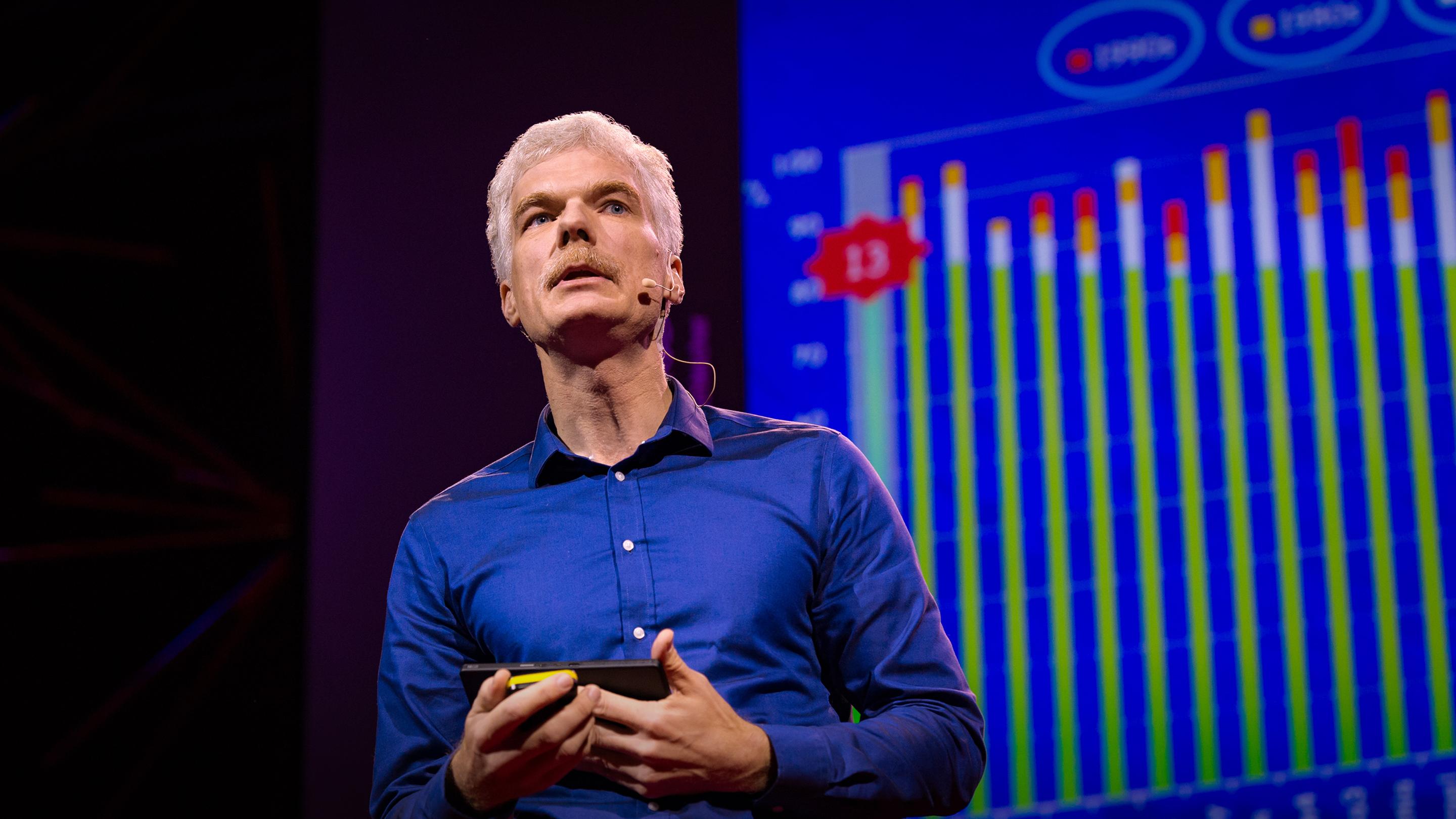
How can we measure what makes a school system work? Andreas Schleicher walks us through the PISA test, a global measurement that ranks countries against one another — then uses that same data to help schools improve. Watch to find out where your country stacks up, and learn the single factor that makes some systems outperform others.
Takaharu Tezuka: The best kindergarten you’ve ever seen
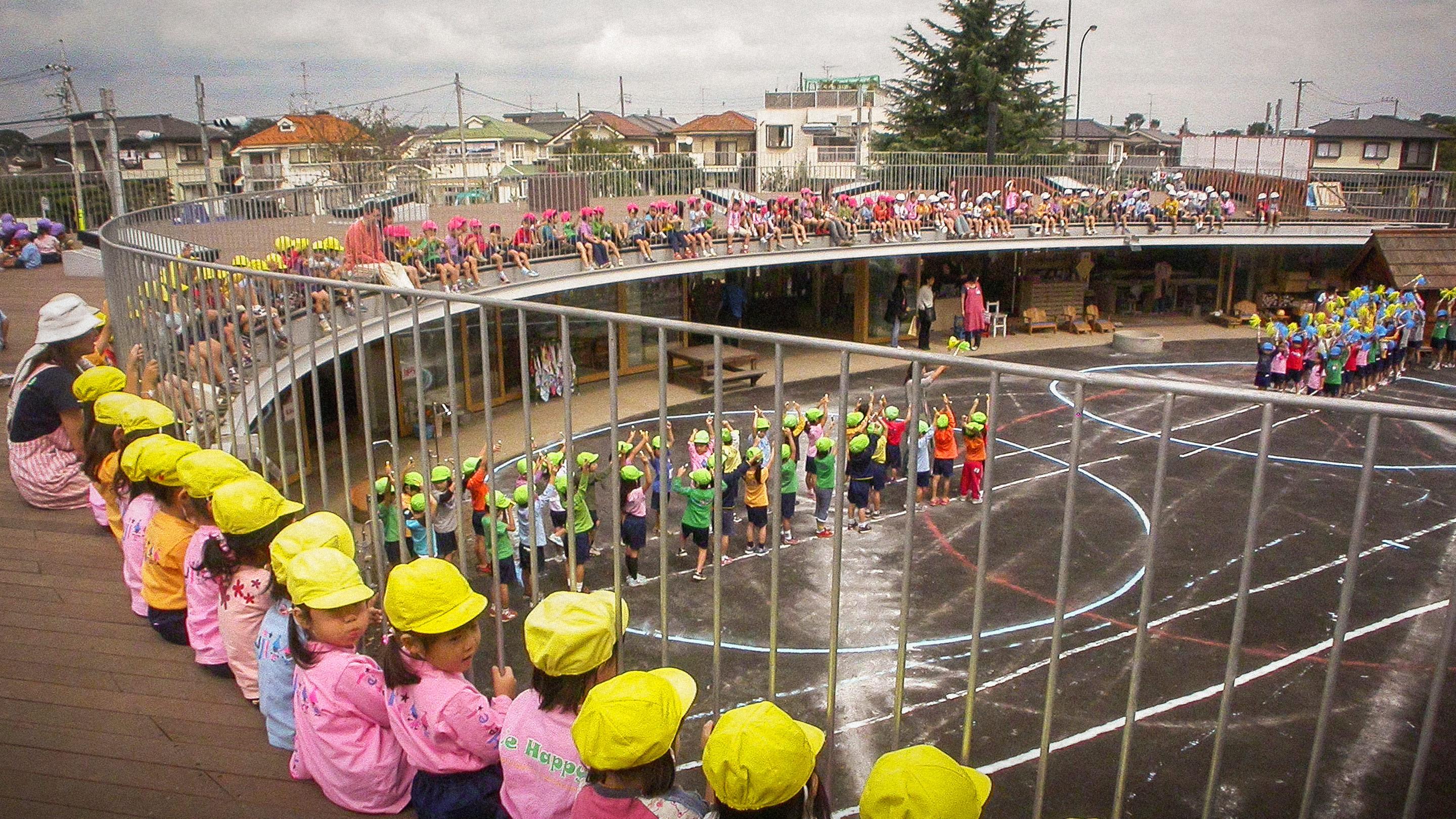
At this school in Tokyo, five-year-olds cause traffic jams and windows are for Santa to climb into. Meet: the world’s cutest kindergarten, designed by architect Takaharu Tezuka. In this charming talk, he walks us through a design process that really lets kids be kids.
Emily Pilloton: Teaching design for change
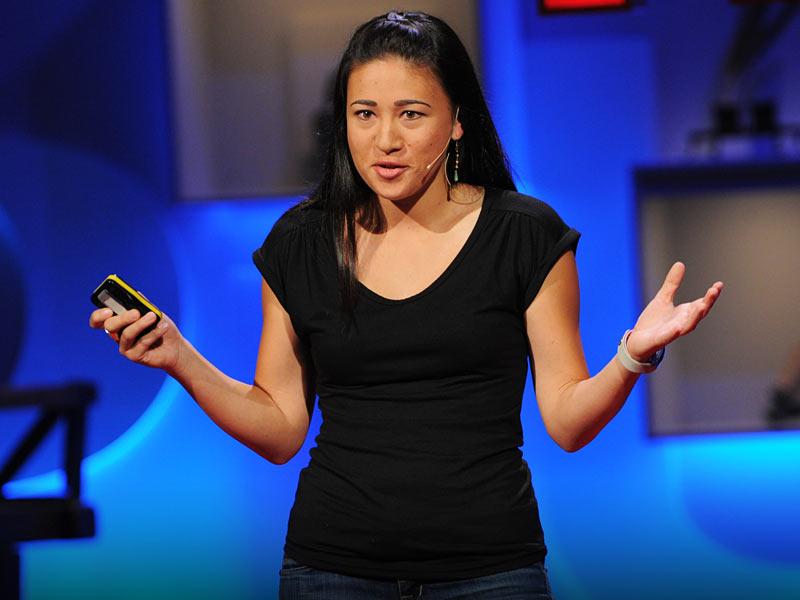
Designer Emily Pilloton moved to rural Bertie County, in North Carolina, to engage in a bold experiment of design-led community transformation. She’s teaching a design-build class called Studio H that engages high schoolers’ minds and bodies while bringing smart design and new opportunities to the poorest county in the state.
John Hunter: Teaching with the World Peace Game
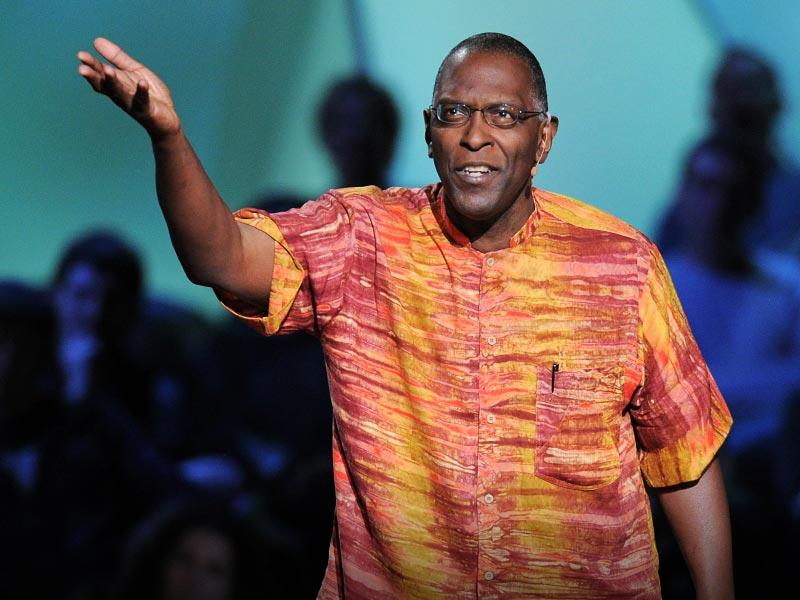
John Hunter puts all the problems of the world on a 4’x5′ plywood board — and lets his 4th-graders solve them. At TED2011, he explains how his World Peace Game engages schoolkids, and why the complex lessons it teaches — spontaneous, and always surprising — go further than classroom lectures can.
John Hardy: My green school dream

Join John Hardy on a tour of the Green School, his off-the-grid school in Bali that teaches kids how to build, garden, create (and get into college). The centerpiece of campus is the spiraling Heart of School, perhaps the world’s largest freestanding bamboo building.
Freeman Hrabowski: 4 pillars of college success in science
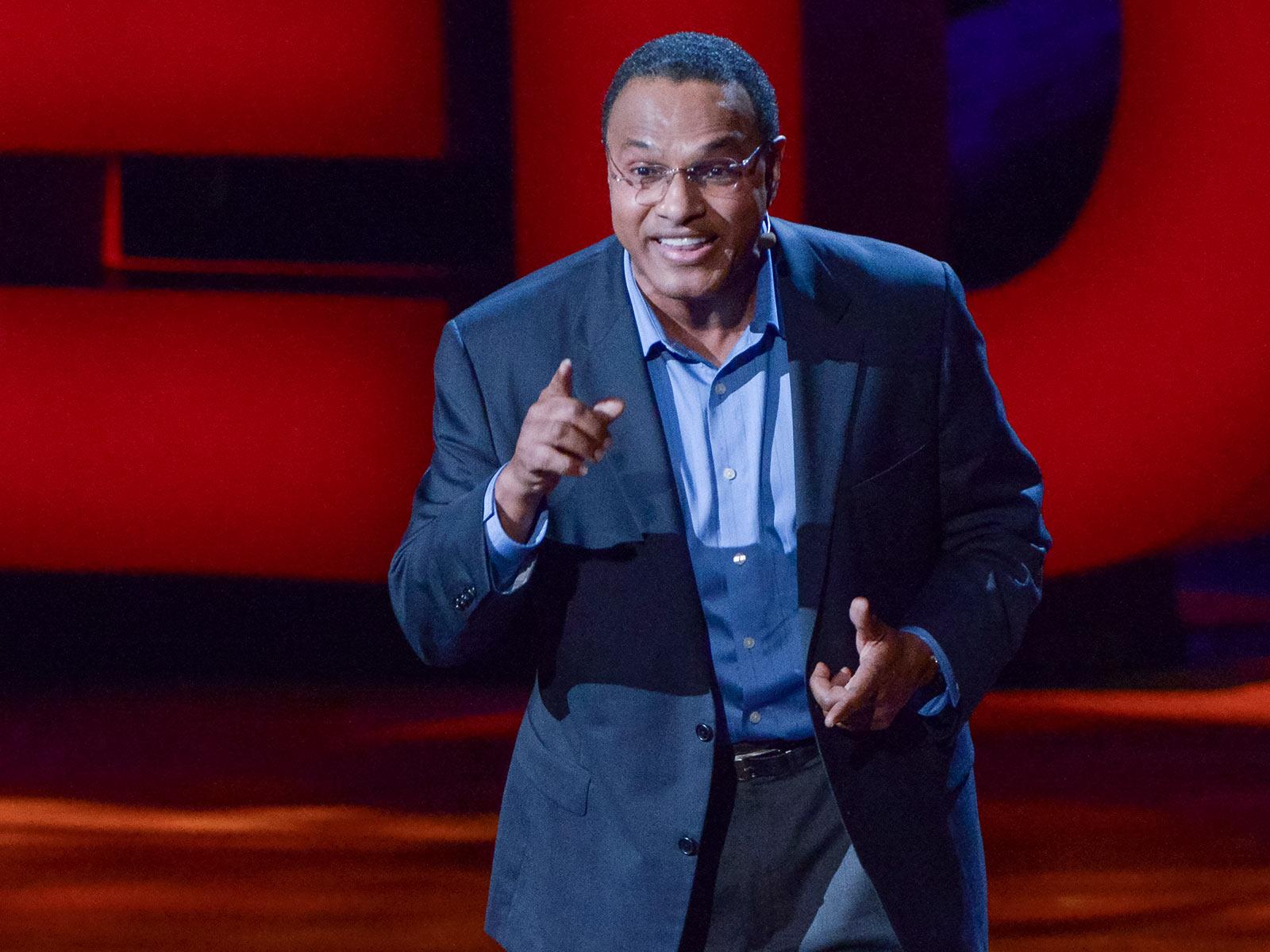
At age 12, Freeman Hrabowski marched with Martin Luther King. Now he’s president of the University of Maryland, Baltimore County (UMBC), where he works to create an environment that helps under-represented students — specifically African-American, Latino and low-income learners — get degrees in math and science. He shares the four pillars of UMBC’s approach.
Timothy Bartik: The economic case for preschool
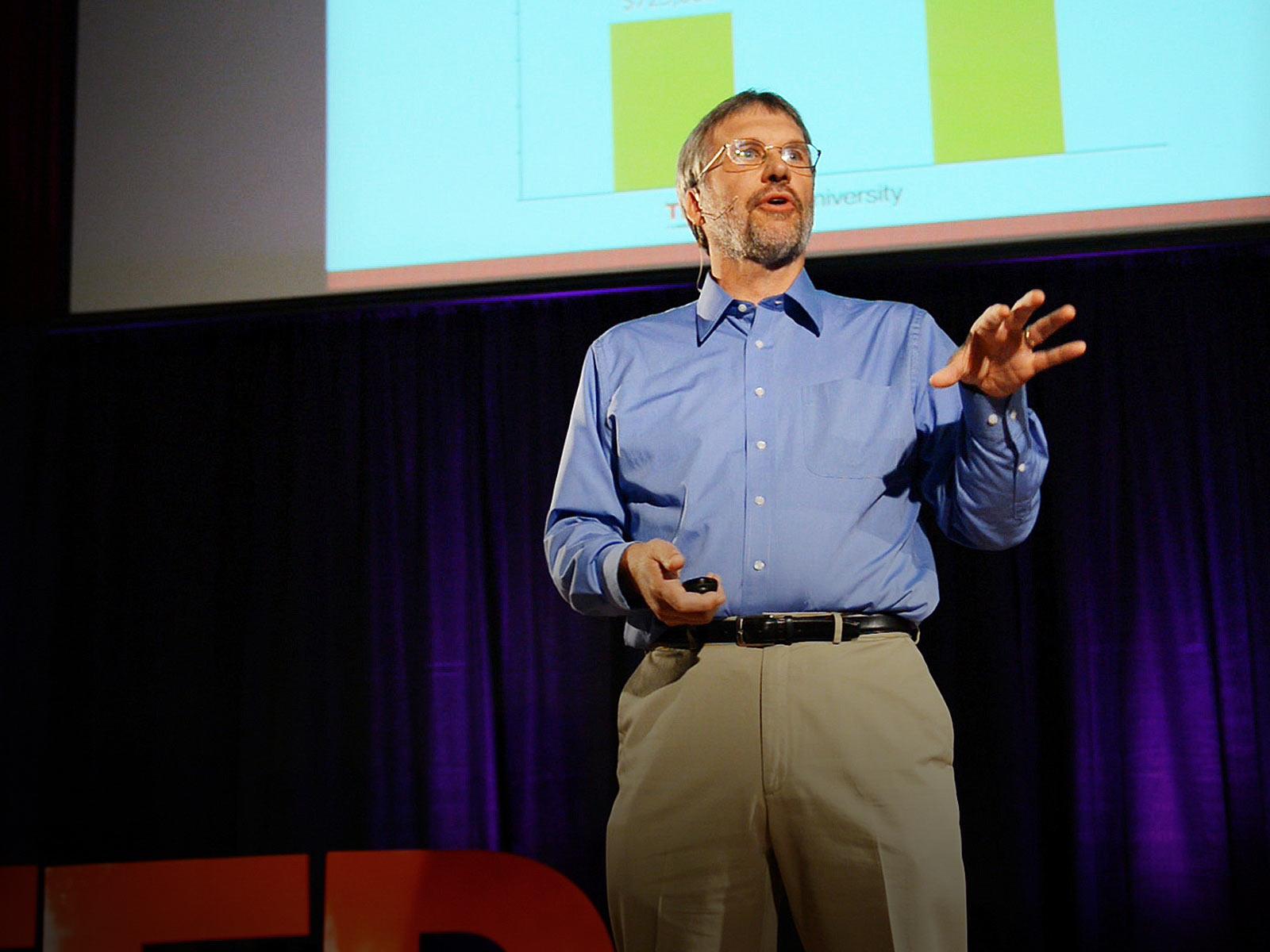
In this well-argued talk, Timothy Bartik makes the macro-economic case for preschool education — and explains why you should be happy to invest in it, even if you don’t have kids that age (or kids at all). The economic benefits of well-educated kids, it turns out, go well beyond the altruistic.
Shimon Schocken: The self-organizing computer course
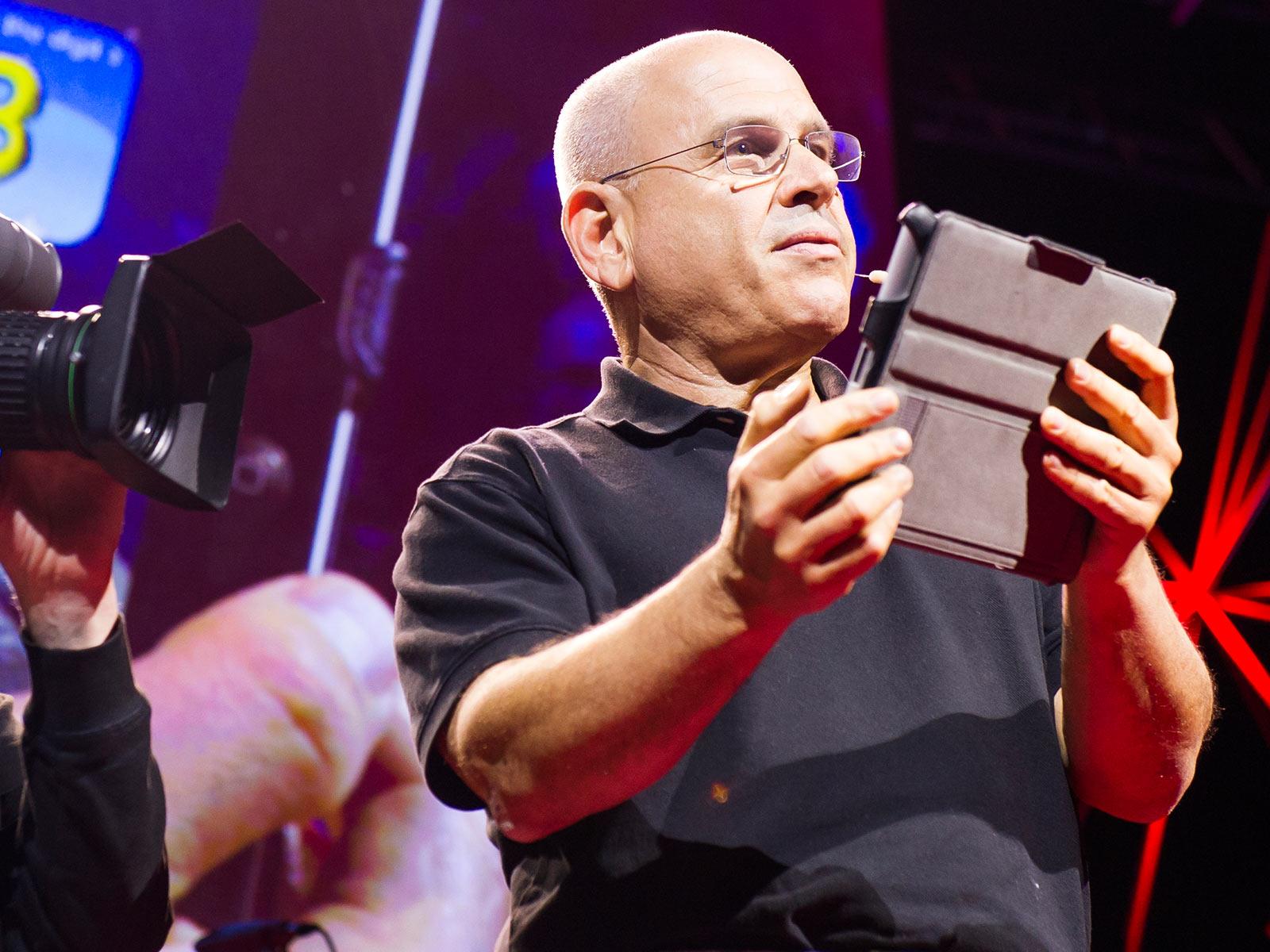
Shimon Schocken and Noam Nisan developed a curriculum for their students to build a computer, piece by piece. When they put the course online — giving away the tools, simulators, chip specifications and other building blocks — they were surprised that thousands jumped at the opportunity to learn, working independently as well as organizing their own classes in the first Massive Open Online Course (MOOC). A call to forget about grades and tap into the self-motivation to learn.
Kang Lee: Can you really tell if a kid is lying?
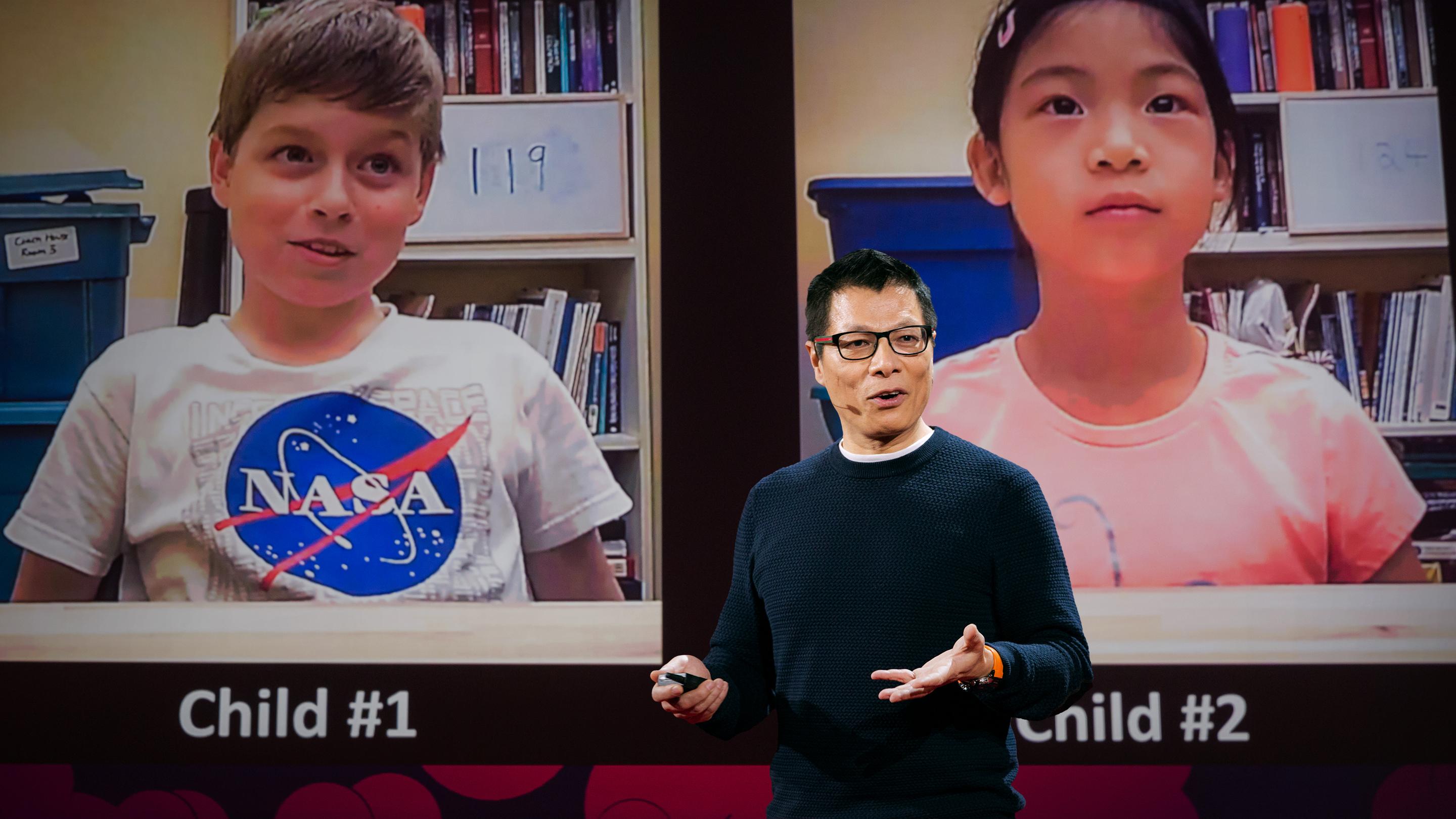
Are children poor liars? Do you think you can easily detect their lies? Developmental researcher Kang Lee studies what happens physiologically to children when they lie. They do it a lot, starting as young as two years old, and they’re actually really good at it. Lee explains why we should celebrate when kids start to lie and presents new lie-detection technology that could someday reveal our hidden emotions.
Richard Baraniuk: The birth of the open-source learning revolution
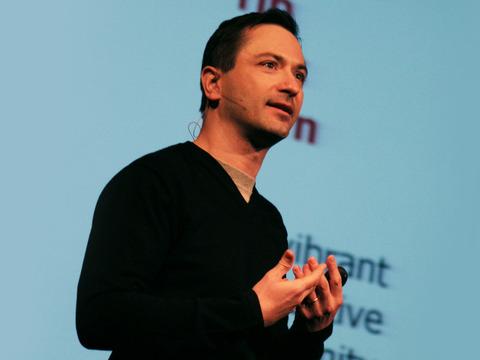
In 2006, open-learning visionary Richard Baraniuk explains the vision behind Connexions (now called OpenStax), an open-source, online education system. It cuts out the textbook, allowing teachers to share and modify course materials freely, anywhere in the world.
Blaise Agüera y Arcas: How computers are learning to be creative
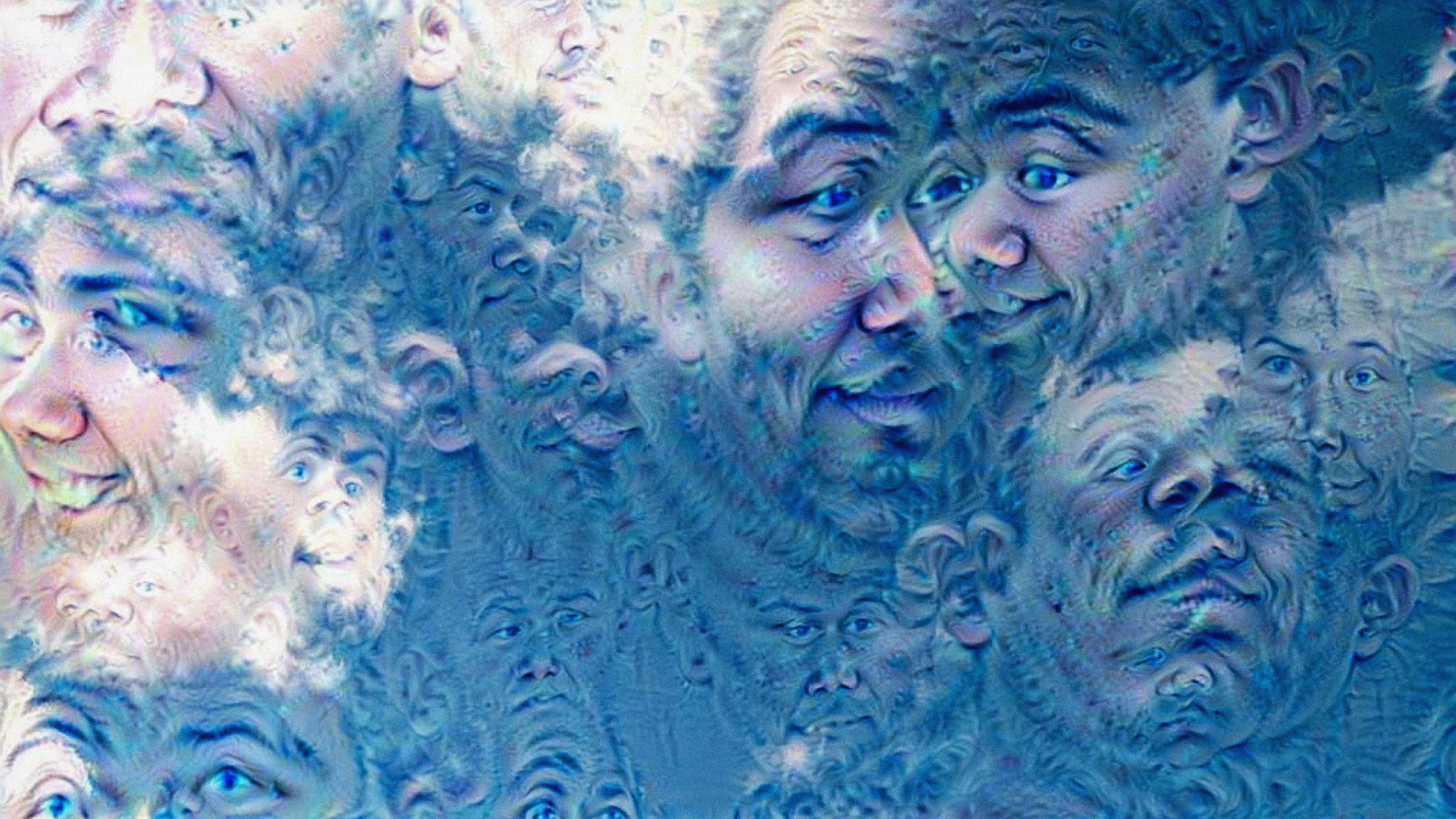
We’re on the edge of a new frontier in art and creativity — and it’s not human. Blaise Agüera y Arcas, principal scientist at Google, works with deep neural networks for machine perception and distributed learning. In this captivating demo, he shows how neural nets trained to recognize images can be run in reverse, to generate them.
Check out more educational TED Talks .
Rate This Article
Average Rating: 0 / 5. Total Ratings: 0
Similar Content

Assembly Bill 104 Explained: Retention, Grade Changes and Exemptions
Gov. Gavin Newsom has signed Assembly Bill 104 (Gonzalez), one of the most notable bills...

Does Your Board Micromanage You?
The following article is written by Jim Capolupo, former superintendent and current president of Cambridge Solutions....

Webinar: Leading for Change in the Midst of Crisis
Effective leadership amidst a pandemic is new to everyone. Watch three experienced Superintendents in...

School’s In: Superintendents Share Early Lessons Learned
Watch ACSA and CALSA in a conversation with Superintendents from North, Central and Southern...

The Administrators’ Guide to the Benefits of Online Professional Development
The following article was provided by Total School Solutions. With COVID forcing changes from the traditional...

Tips from Administrators on Finding Work-life Balance
Educational leadership is a demanding career, often blurring the lines between different parts of our...

Taking Time to B.R.E.A.T.H.E.
Joelle Hood discusses research-based practices to strengthen well-being and resilience. Rate This Article Submit...

Small School Districts: Opening Schools During a Pandemic
What we can learn from the small school district experience. Panelists: Dr. Mary McNeil, Superintendent, Needles...
Leave a Comment Cancel reply
Your email address will not be published. Required fields are marked *
Save my name, email, and website in this browser for the next time I comment.
.
, .
, , .

10 Of The Best TEDTalks On Improving Education
There have been some rumblings that TED Talks may have jumped the shark–a topic our own Nathan Jurgenson took on recently. Either way, there have been some worthwhile talks given on ideas for changing education, and the folks over at TED have done us all a solid by piling 10 of them together in a…
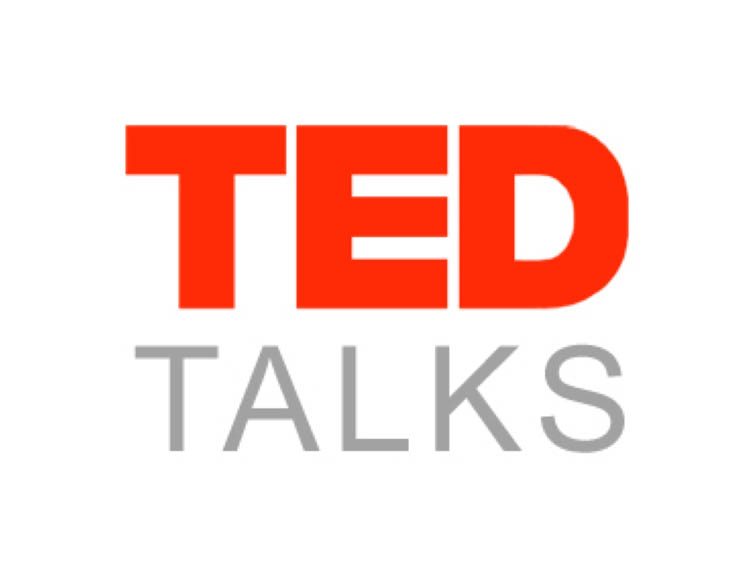
There have been some rumblings that TED Talks may have jumped the shark–a topic our own Nathan Jurgenson took on recently .
Either way, there have been some worthwhile talks given on ideas for changing education, and the folks over at TED have done us all a solid by piling 10 of them together in a single post , starting with the ubiquitous Ken Robinson “Bring on the Learning Revolution,” then including Emily Pilloton’s ideas on design in learning, Dan Meyer’s ideas on a potential math makeover, and Diana Laufenberg on the importance of mistakes..
You may have caught most of them, but if you haven’t here’s your chance. If you’re not sure where to start, give Laufenberg’s thoughts on failure a listen.
1. Sir Ken Robinson: Bring on the learning revolution!
2. Emily Pilloton: Teaching design for change
3. Stephen Ritz: A teacher growing green in the South Bronx
4. Daphne Koller: What we’re learning from online education
5. Ann Cooper talks school lunches
6. Taylor Mali: What teachers make
7. Dan Meyer: Math class needs a makeover
8. Diana Laufenberg: How to learn? From mistakes
9. Shimon Schocken: The self-organizing computer course
10. Ken Robinson: Changing education paradigms
TeachThought is an organization dedicated to innovation in education through the growth of outstanding teachers.

5 Inspiring TED Talks All Education Leaders Should Watch

When was the last time you had an "Aha!" moment? Engineering them in our lives requires inspiration. As the product of a global community with the sole mission of spreading ideas, TED Talks are the perfect avenue to hear inspirational stories from great leaders.
We curated a list of TED Talks delivered by leaders in education and beyond to serve you as you recommit to your passion and ready yourself for the new school year. You'll find stories that inspire, tips that enhance your leadership, and reminders about the importance of your work. Watch them yourself or share them with your team so you can reflect together. To see our complete list of recommended resources, read How Education Leaders Can Restore, Retool, Recommit Now—And All School Year Long.
1. How to Fix a Broken School? Lead Fearlessly, Love Hard
Turning around struggling schools is not easy, but with the right passion and skills, it can be done, says veteran educator Linda Cliatt-Wayman . Reflecting on how she and her team transformed a high school in North Philadelphia, Cliatt-Wayman shares the three fundamental principles that guided them.
Worth quoting: “As we lead, we must never forget that every single one of our students is just a child, often scared by what the world tells them they should be. And no matter what the rest of the world tells them they should be, we should always provide them with hope, our undivided attention, unwavering belief in their potential, and consistent expectations.”
Read stories of other principals who led their schools through adversity:
- Ground Zero: What I Learned About Leadership in My First Week as Principal
2. The Danger of a Single Story
Life, as we know it, is made up of overlapping stories. Novelist Chimamanda Adichie cautions that we risk misunderstanding others if we only focus on a single story about a person or their culture. Adichie shares how she found her authentic voice and why stereotypical stories are incomplete.
Worth quoting: “The consequence of a single story is this: It robs people of dignity. It makes recognition of our equal humanity difficult. It emphasizes how we are different rather than how we are similar.”
The bottom line? Representation in school leadership benefits all students. Read more about why this is so:
- Closing the Representation Gap: A Series of Papers
- Why Representation Matters in Our Schools
3. How Great Leaders Inspire Action
Influential leaders inspire others by starting with "why" rather than "what" or "how." British-American author and thought leader Simon Sinek’s lecture is the third most watched TED Talk of all time with 34 million viewers . While it speaks directly to business executives, Sinek’s talk has implications across industries for how leaders can communicate, lead, and inspire others to act.
Worth quoting: “There are leaders, and there are those who lead. Leaders hold a position of power or authority, but those who lead inspire us. Whether they’re individuals or organizations, we follow those who lead not because we have to, but because we want to.”
Continue to hone your personal leadership skills with these articles:
- Fuel Your Professional Growth This Summer: 4 Leadership Practices to Cultivate
- Leadership is Learned: Four Ways to Unleash the Leader Within
4. How Schools Can Nurture Every Student's Genius
Education visionary Trish Millines Dziko questions if our public education system is designed to cultivate future leaders. Millines Dziko co-founded the Technology Access Foundation (TAF) with the central goal of eliminating racial disparities in education. In her TED talk, she discusses an approach to promoting equitable learning and helping students develop critical thinking and leadership skills.
Worth quoting : “Education either functions as an instrument to bring about conformity or freedom. Let’s give our children freedom.”
Need strategies to strengthen your equity focus? These articles will help:
- Equity-Focused Leadership: 4 Tips to Keep Moving Forward
- Strengthening Your Equity-Focused Leadership: 6 Questions for Self-Reflection
5. Building Student Identity and Agency
As educators, we have the power to shape the identities of our students. We can either build students up or tear them down. Practicing school leader and author Dominique Smith suggests we examine how some practices may be labeling students and what we can do to help kids build positive identities instead.
Worth quoting: “We have the power to change how individuals feel about themselves. We have the power to make students go home and say, ‘I am proud of who I am. I’m excited about who I am. I make a difference in this world.’ Sometimes we don’t take that power.”
For more tips on building a positive school culture, peruse these articles:
- Social-Emotional Learning: Ways for School Leaders to Support Students
- Shaping School Culture: Four Leadership Actions to Consider
Inspiration found
The new school year is a time for fresh starts and new beginnings. It’s also a time to recommit to your passion and remember why you entered the profession in the first place. Get inspired by the personal stories of other leaders so you can start the new school year with courage and as the best version of yourself. Your staff and your students are counting on it.
What inspirational talks are you playing on repeat? Let us know by tweeting them to @NewLeadersOrg.
I want to keep reading.
Join over 150k readers., subscribe to our blog.
- Lorem ipsum dolor sit amet, consectetur adipiscing elit, sed do eiusmod
Can’t get enough stories of incredible leaders?
Read More Posts Like This One

5 Practices for K-12 Leaders to Strengthen Relationships with Administration

4 Essential Strategies for Thriving in Your First Year as an Assistant Principal

Advice on How to Ace Your First Year as a K-12 Principal

- Grades 6-12
- School Leaders
Win a $1,000 gift certificate of your choice! ✨
45 TED Talks That Will Intrigue, Encourage, and Inspire Your Students
Amazing speakers on fascinating topics.
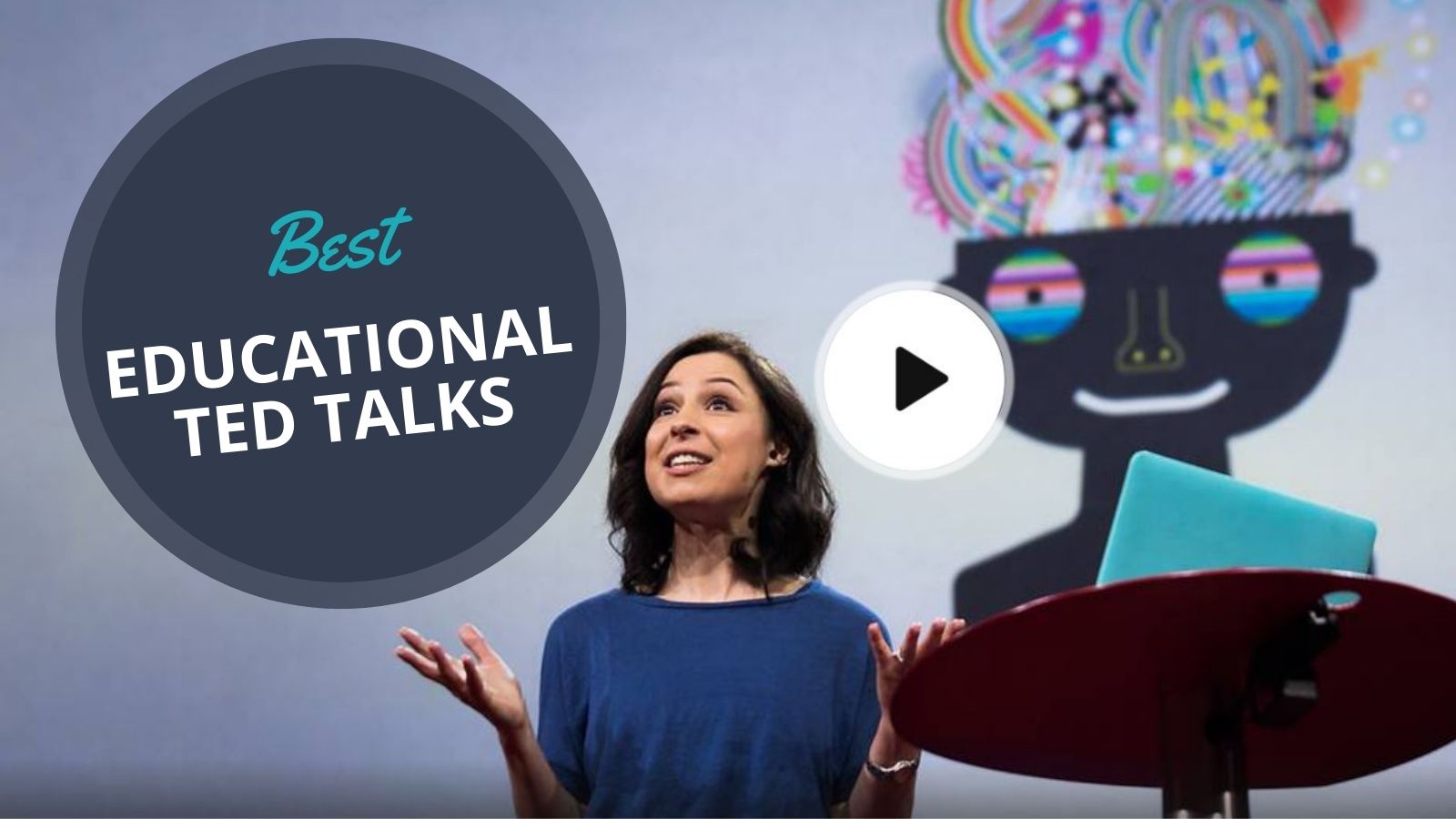
By now, you probably know about TED , a nonprofit organization dedicated to sharing important ideas through brief, impactful talks. TED Talks can be an amazing classroom resource that sparks meaningful conversations. (Their TED-Ed videos are especially valuable, since they include complete lesson plans for teachers.) We’ve rounded up some of our favorite TED Talks students will really enjoy. You’ll find options here for every age and interest.
STEM TED Talks for Students
History and culture ted talks for students, inspirational ted talks for students.
These videos include Ted Talks students can learn from, in ways that will truly engage them. See hands-on science in action, and explore topics in a way kids can easily understand.
Emma Bryce: What really happens to the plastic you throw away? (3:53)
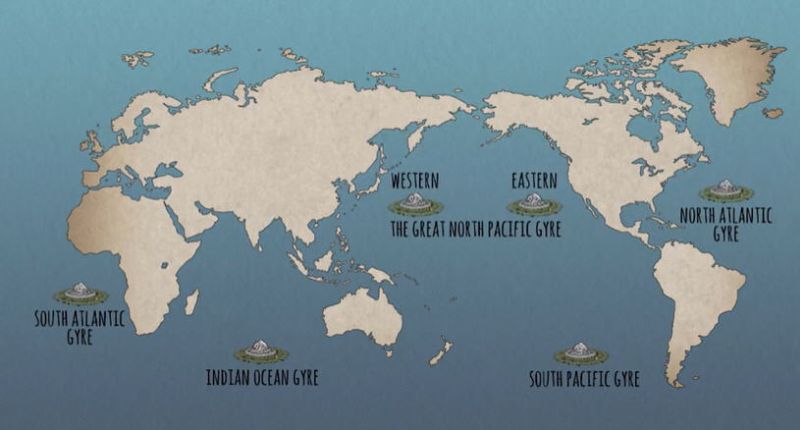
Plastic bottles are everywhere these days. In this video, you’ll follow the life cycles of three different bottles. Each journey teaches us something about how plastics affect the environment.
Angela Koine Flynn: The science of skin color (4:39)
Why do some people tan (or burn) so fast while others can sit in the sun for hours? How did our skin develop so many different hues to begin with? Find out, then follow up with The Beauty of Human Skin in Every Color !
Anita Collins: How playing an instrument benefits your brain (4:30)
When you listen to music, multiple areas of your brain become engaged and active. But when you actually play an instrument, that activity becomes more like a full-body brain workout.
Myriam Sidibe: The simple power of hand-washing (11:32)
This talk begins with some sobering statistics: 6.6 million children worldwide don’t make it to their fifth birthday. But Myriam Sidibe reveals the simplest of solutions that may reverse the trends—a bar of soap.
Beau Lotto and Amy O’Toole: Science is for everyone, kids included (15:10)
Neuroscientist Beau Lotto shares the parallels between science and play with the help of 25 elementary-age children.
Eva-Maria Geigl: The history of the world according to cats (4:21)

Long ago, wild cats were fierce hunters. Over the centuries, they’ve become the house pets we now know and love. Learn how our furry friends came to be in this fun video.
Kelli Sandman-Hurley: What is dyslexia? (4:20)
There’s probably at least one student in your classroom with dyslexia. Learn how it affects learning and why we should celebrate neurodiversity.
Arthur Benjamin: Mathemagic (15:02)
Art Benjamin combines his two loves, math and magic! Watch him perform three-digit multiplication in his head faster than his helpers using a calculator.
AnnMarie Thomas: Hands-on science with squishy circuits (3:52)
Kids will love learning how to create circuits using two different kinds of homemade play dough. Don’t be surprised when they want to try it for themselves.
Jack Andraka: A promising test for pancreatic cancer … from a teenager (10:36)
Jack developed an inexpensive, effective, and non-invasive test for pancreatic cancer. Oh, and he did it all before his 16th birthday!
Claire Simeone: The lovable (and lethal) sea lion (4:37)
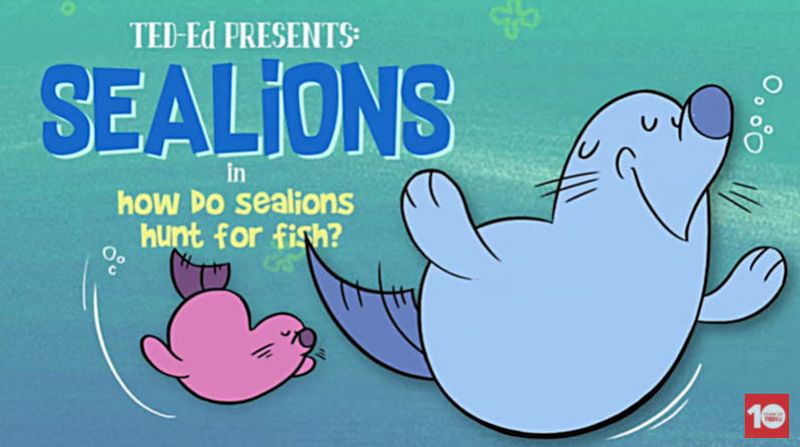
Go for a swim with one of the ocean’s coolest creatures, the sea lion. They can hunt for up to 30 hours at a time and reach speeds of 18 mph. Amazing!
Thomas Suarez: 12-year-old app developer (4:24)
“Where do you go to find out how to make an app?” Thomas was 12 when he asked this question. He taught himself to build apps and wants to inspire other kids to do the same.
Daphne Bavelier: Your brain on video games (17:45)
Kids are often told video games are “bad” for them. Brain scientist Daphne Bavelier challenges that notion. She believes that playing video games in “reasonable doses” can actually have lots of positive effects on our brain. Bavelier shares how she and other scientists are using their research to help others.
William Kamkwamba: How I built a windmill (3:59)
At age 14, a Malawian boy named William Kamkwamba sought a way to help his village combat famine. Ultimately, he built a wind turbine entirely out of spare parts and scrapyard materials. Next, learn how it changed his life in How I Harnessed the Wind .
Terry Moore: How to tie your shoes (2:43)
Terry Moore believes that most of us are tying our shoes incorrectly. Surprisingly enough, he’s probably right. In this informative TED Talk, Moore demonstrates how to tie a stronger knot that won’t let us down. As Moore notes, sometimes small advantages can yield big results.
Joe Smith: How to use a paper towel (4:15)
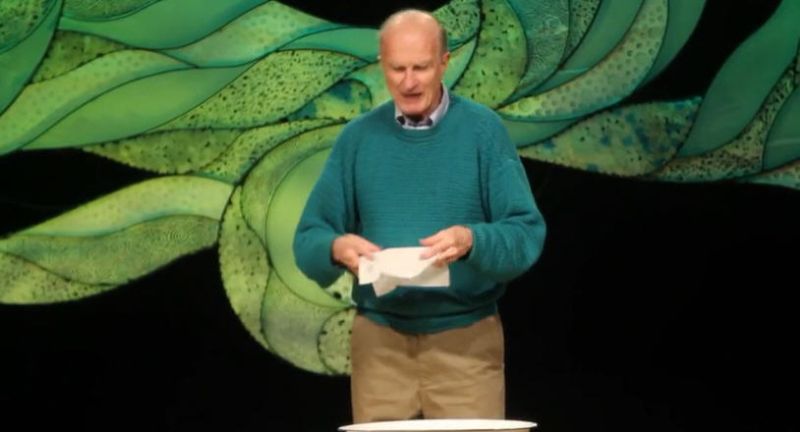
Joe Smith is on a mission to save paper by teaching us the correct way to use a paper towel. Spoiler alert: We’re doing it wrong and creating a lot of waste in the process.
John Green: The nerd’s guide to learning everything online (18:01)
John Green talks about the importance of the internet and why it makes learning more awesome. He demonstrates how platforms like YouTube can help build engaging communities of learning and discovery.
Explore topics from history and the arts and make connections with people around the world.
Soraya Field Fiorio: Who was the world’s first author? (4:55)
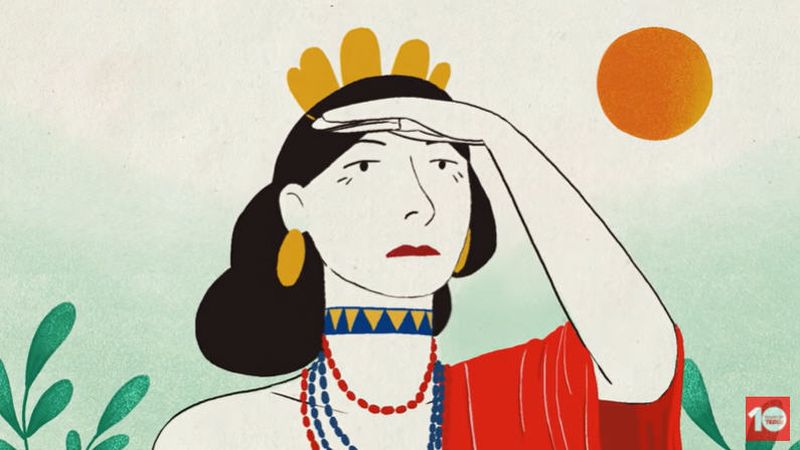
Would you have guessed that the world’s first known author was a woman? Find out about her life and writings, dating back 4,300 years.
Iseult Gillespie: How to see more and care less: The art of Georgia O’Keeffe (5:00)
Artist Georgia O’Keeffe was inspired by the shapes and rhythms of nature. Her unique way of looking at the world gave rise to American Modernism.
Brian A. Pavlac: Ugly History: Witch Hunts (5:25)
For much of human history, people believed witches were real—and evil. They hunted the suspected witches, put them on “trial,” and tortured them, often to death. Take a closer look at this difficult chapter of our past and how it came to be.
Diane J. Rayor: Ancient Greece’s greatest popstar (5:25)
Kids who love Beyoncé or Adele will love learning about Sappho, one of ancient Greece’s most famous poets. She coined the word “bittersweet” to describe the ups and downs of romance. Her writings made her a superstar of her day!
Kayla Wolf: Why every world map is wrong (4:57)
It’s simply impossible to make a map of the spherical world that’s accurate. So why do we keep using them? And how can we change them to shift our point of view? Find out in this intriguing video.
Ann-Helén Bay: Why is it so hard to escape poverty? (4:45)

Many people believe that if you work hard enough, you’ll automatically succeed. But poverty is a trap that frequently pulls people back down, no matter how hard they try. Why should that be, and how can we overcome it?
Danielle Feinberg: The magic ingredient that brings Pixar movies to life (11:55)
Go behind the scenes with Danielle Feinberg, Pixar’s director of photography. See what happens when science and art collide to create Pixar’s incredible three-dimensional worlds.
Kevin Allocca: Why videos go viral (7:04)
Only a tiny percentage of online videos go viral. But when they do, they become part of a cultural phenomenon that fascinates and mystifies us. Kevin Allocca shares the secret ingredients that contribute to a video’s viral success.
Jamila Lyiscott: 3 ways to speak English (4:16)
In this powerful spoken-word performance, Lyiscott challenges the standard notion of what it means to be “articulate” in today’s society. She shares her experience navigating three distinct English dialects at home, at school, and with friends.
Doug Levinson: What gives a dollar bill its value? (3:26)
Ever wonder how inflation works or what determines the value of a buck? Join the workers of the Federal Reserve and learn how it all works.
The LXD: In the Internet age, dance evolves (17:13)
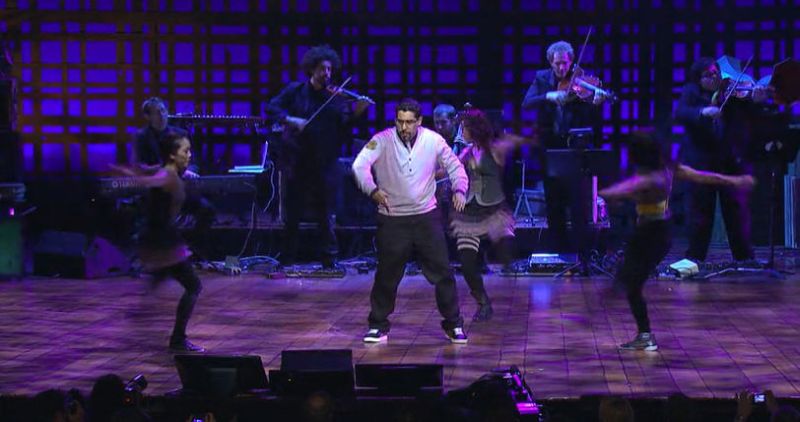
The LXD (Legion of Extraordinary Dancers) believes that dance can have a transformative effect on the world. Their stunning street dance performance makes for a TED Talk video students will want to watch again and again. Fans of Glee and So You Think You Can Dance may see some familiar faces.
Mac Barnett: Why a good book is a secret door (16:51)
Everyone needs a little whimsy in their lives. Children’s writer Mac Barnett shares the power of imagination in this playful talk. He introduces us to Nico, an imaginative child who brings Barnett’s message to life.
Tavi Gevinson: A teen just trying to figure it out (7:14)
Tavi Gevinson noticed that women, particularly young girls, were often misrepresented in popular media. In response, she created a web magazine where teenagers can share stories, ask questions, and “figure it out” together.
Encourage kids to ask more questions and seek out the best the world has to offer with these TED Talks.
Matthew Winkler: What makes a hero? (4:30)

What trials unite Harry Potter, Frodo Baggins, and more of literature’s most interesting heroes? And what do ordinary people have in common with these literary heroes?
Manoush Zomorodi: How boredom can lead to your most brilliant ideas (16:04)
Believe it or not, boredom can actually result in your most creative accomplishments. Zomorodi explains that when your body is on autopilot, your brain gets busy!
Clint Smith: The danger of silence (4:09)
“Read critically. Write consciously. Speak clearly. Tell your truth.” Teacher Clint Smith explains the relationship between silence and discrimination.
Derek Sivers: How to start a movement (2:53)
How do movements gain traction? According to Derek Sivers, it’s different than you might think. In less than three minutes, Sivers takes us step-by-step through a movement forming in real time. He shares the lessons we can learn from those who have the courage to follow.
Angela Lee Duckworth: Grit: The power of passion and perseverance (5:54)
Angela Lee Duckworth is a public school teacher turned psychologist. Her research indicates success and IQ are not as interconnected as many might think. In this motivational talk, she reinforces the importance of building grit in ourselves and our students.
George Takei: Why I love a country that once betrayed me (15:45)
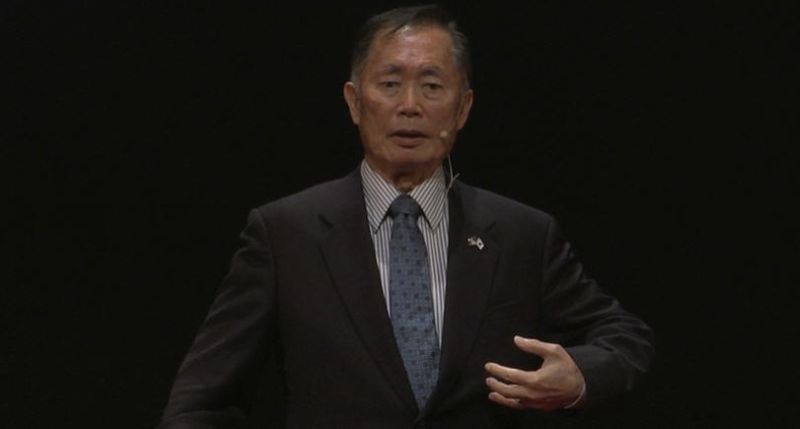
Explore patriotism and social justice with this engaging talk by actor and activist George Takei. Following the bombing of Pearl Harbor, young George and his family were forcibly relocated to a Japanese American internment camp. He shares how his father helped him reconcile this experience with the core ideal of American democracy.
Christian Picciolini: My descent into America’s neo-Nazi movement—and how I got out (20:10)
In this courageous talk, Christian Picciolini shares his personal journey of overcoming prejudice and hate. A former neo-Nazi, Picciolini now dedicates his time to helping others combat violent extremism in their own lives. He notes that these movements often target the young, vulnerable, and marginalized—like he once was. (Mature content and drug references.)
Tim Urban: Inside the mind of a master procrastinator (13:55)
Procrastinators, unite! In this relatable TED Talk, Tim Urban offers hilarious insight into the mind of a procrastinator. Kids will find the “instant gratification monkey” both funny and relatable.
Susan Cain: The power of introverts (18:48)
Author Susan Cain argues for the importance of introverts in a world that seems to favor the opposite. She explains why solitude matters, as well as how it contributes to creativity and leadership.
Shane Koyczan: To This Day … for the bullied and beautiful (11:47)
In this powerful video, Koyczan shares his viral spoken-word poem about bullying and survival. This beautiful talk is a must-see for anyone who has ever felt life’s uncertainty, loneliness, or frustration. (Mature content and language.)
Joachim de Posada: Don’t eat the marshmallow! (5:46)

Joachim de Posada explains the value of self-discipline, demonstrated by a famous experiment. Students will laugh at little ones trying hard not to eat a marshmallow. But there’s a lot to learn here too.
Jarrett J. Krosoczka: Why lunch ladies are heroes (5:12)
Children’s author Jarrett J. Krosoczka illustrates the power of a simple thank-you in this talk. He encourages us to celebrate our cafeteria staff and the important work they do throughout the year.
Chimamanda Ngozi Adichie: The danger of a single story (18:33)
Stories matter. In this eye-opening talk, novelist Chimamanda Ngozi Adichie explains how power shapes the stories we hear and tell others. She warns against the danger of a single story. They can be incomplete and even offer harmful understandings of others based on a single narrative or experience. Adichie raises important questions that can encourage students to explore concepts of identity and perspective.
Drew Dudley: Everyday leadership (6:01)
In this inspiring talk, Drew Dudley explains how small acts of kindness can transform the lives of others. He believes leadership isn’t about changing the world but about changing each other’s understanding of the world.
Amy Cuddy: Your body language may shape who you are (20:46)
Cuddy explains how our body language shapes how others see us—and how we see ourselves. Learn how “power posing” can help us feel more confident.
What are your favorite TED Talks students will want to watch? Come and share in our WeAreTeachers HELPLINE group on Facebook.
Plus, check out 12 must-see ted talks for teachers ..
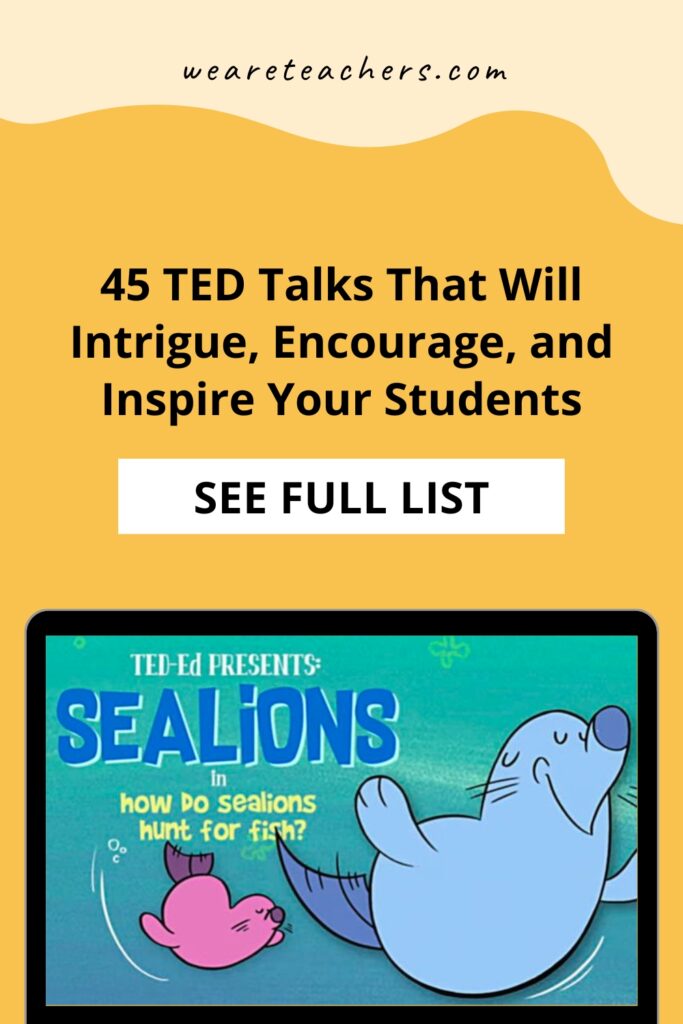
You Might Also Like
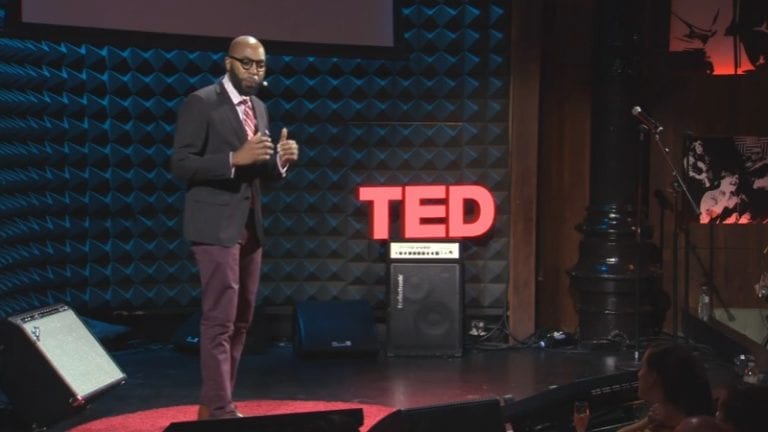
12 Must-See TED Talks for Teachers
These videos changed the way I think about teaching. Continue Reading
Copyright © 2024. All rights reserved. 5335 Gate Parkway, Jacksonville, FL 32256
Save 35% on selected course fees. Ends 27th August 2024

50 Ted Talks Every Educator Should Check Out
T he communication explosion reaches its peak when you explore the endless avenues running through TED Talks. Moreover, the title educator embodies many forms within these talks.
So it’s precisely for this reason that any educator benefits from so many of these talks. Each speaker reveals his or her passion of a view or a subject with the enthusiasm of a first-year teacher.
Using TED Talks to convey an important message or spark creativity might be more effective in teaching students than an individual agenda or preconceived notion of what should be said. Furthermore, TED Talks challenges educators everywhere to think differently and encourage the same in their students.
These are the best TED Talks for any educator because they make us laugh, warm our hearts, break down barriers, and always inspire us to dig a little deeper and push a little harder.
Further your education career with a self-paced online Certificate
Here are informED’s picks for the Top 20 TED Talks for Educators
1. 100,000 Tutors
One student described this Stanford University class on Artificial Intelligence as “sitting in a bar with a really smart friend who’s explaining something you haven’t grasped but are about to “ Peter Norvig: The 100,000 student classroom pinpoints what it takes to create online learning at its best, how it should work and how it should feel.
2. School Cloud
Sugata Mitra won the 2013 TED Prize for his idea: Build a School in the Cloud . After quite literally putting a computer in a wall in impoverished areas of India, he proved that children, people, are capable of learning without an agenda or even a teacher. Given the proper tools people will group together and teach themselves. They only need encouragement and positive reinforcement as a teaching mechanism.
3. Autistic Brothers
Another must-see for educators, Faith Jegede: What I’ve learned from my autistic brothers enlightens anyone who sees education as a one-way street. Faith Jegede shares her insights into the beauty behind the Autistic mind and urges us to change our view of “normal.”
4. Teacher Feedback
In this Ted Talk, Bill Gates: Teachers need real feedback , Gates talks about the need for teachers to receive valuable feedback so that they can improve and strengthen their skills and become better teachers. He brings the teaching field to technology and cameras, using video to share and promote better and more effective teaching.
5. Bring On the Learning Revolution!
In this poignant, funny follow-up to his fabled 2006 talk, Sir Ken Robinson makes the case for a radical shift from standardized schools to personalized learning — creating conditions where kids’ natural talents can flourish.
6. Teaching Design for Change
Designer Emily Pilloton moved to rural Bertie County, in North Carolina, to engage in a bold experiment of design-led community transformation. In this video , she talks about teaching a design-build class called Studio H that engages high schoolers’ minds and bodies while bringing smart design and new opportunities to the poorest county in the state.
7. What We’re Learning From Online Education
Daphne Koller is enticing top universities to put their most intriguing courses online for free — not just as a service, but as a way to research how people learn. With Coursera (cofounded by Andrew Ng), each keystroke, quiz, peer-to-peer discussion and self-graded assignment builds an unprecedented pool of data on how knowledge is processed. Watch the video here .
8. What Teachers Make
Ever heard the phrase “Those who can’t do, teach”? At the Bowery Poetry Club, slam poet Taylor Mali begs to differ, and delivers a powerful, 3-minute response on behalf of educators everywhere.
9. How to Learn? From Mistakes
Diana Laufenberg, an 11th grade history teacher in Philadelphia, shares 3 surprising things she has learned about teaching — including a key insight about learning from mistakes.
10. Changing Education Paradigms
In this talk from RSA Animate, Sir Ken Robinson lays out the link between 3 troubling trends: rising drop-out rates, schools’ dwindling stake in the arts, and ADHD. An important, timely talk for parents and teachers.
11. Don’t Eat the Marshmallow!
In this short talk from TED U, Joachim de Posada shares a landmark experiment on delayed gratification — and how it can predict future success. With a priceless video of kids trying their hardest not to eat the marshmallow.
12. The Puzzle of Motivation
Career analyst Dan Pink examines the puzzle of motivation, starting with a fact that social scientists know but most managers don’t: Traditional rewards aren’t always as effective as we think. Listen for illuminating stories — and maybe, a way forward.
13. Teaching Kids Real Math With Computers
From rockets to stock markets, many of humanity’s most thrilling creations are powered by math. So why do kids lose interest in it? Conrad Wolfram says the part of math we teach — calculation by hand — isn’t just tedious, it’s mostly irrelevant to real mathematics and the real world. In this talk, he presents his radical idea: teaching kids math through computer programming.
14. Teach Arts and Sciences Together
Mae Jemison is an astronaut, a doctor, an art collector, a dancer. Telling stories from her own education and from her time in space, she calls on educators to teach both the arts and sciences, both intuition and logic, as one — to create bold thinkers.
15. Education Innovation in the Slums
Charles Leadbeater went looking for radical new forms of education — and found them in the slums of Rio and Kibera, where some of the world’s poorest kids are finding transformative new ways to learn. And this informal, disruptive new kind of school, he says , is what all schools need to become.
16. Teach Statistics Before Calculus!
Someone always asks the math teacher, “Am I going to use calculus in real life?” And for most of us, says Arthur Benjamin, the answer is no. He offers a bold proposal on how to make math education relevant in the digital age.
17. Mosquitoes, Malaria, and Education
Bill Gates hopes to solve some of the world’s biggest problems using a new kind of philanthropy. In a passionate and, yes, funny 18 minutes , he asks us to consider two big questions and how we might answer them.
18. Let’s Use Video to Reinvent Education
Salman Khan talks about how and why he created the remarkable Khan Academy, a carefully structured series of educational videos offering complete curricula in math and, now, other subjects. He shows the power of interactive exercises, and calls for teachers to consider flipping the traditional classroom script — give students video lectures to watch at home, and do “homework” in the classroom with the teacher available to help.
19. How to Educate Leaders? Liberal Arts
After leaving his Microsoft job in Washington, Awuah returned to his home in Ghana and has helped to open a liberal arts college there. This polished speaker shares his experience in Africa and uses this experience to plead his case for the importance of incorporating a liberal arts education in order to create true leaders.
20. The Birth of the Open Source Learning Revolution
A professor at Rice University in Houston, Texas and the founder of Connexions, an open-source education system, Richard Baraniuk talks about the benefits of open source for educators. Specifically, Baraniuk speaks about the drawbacks of texts books and how using online open-source information provides more current and relevant material. Students pursuing an online bachelor’s degree in Education may have a particular interest in this resource.
21. Sputnik Mania
Filmmaker David Hoffman shares a part of his documentary, Sputnik Mania. Through this movie, Hoffman explains how it contributed to the space and arms race that, in turn, lead to an inspirational movement of math and science education across the US.
22. Finding the Next Einstein in Africa
While accepting his TED prize, physicist Neil Turok shares his wish to provide opportunity for the future of Africa through opening and nurturing the creativity available in the young people there. Turok uses his math and science background to understand why and how Africa has been left behind–and how we can change it.
23. What I’m Worried About, What I’m Excited About
Bill Joy muses on what’s next. Looking to the future, this co-founder of Sun Microsystems discusses how society and individuals have reacted to situations in the past. He then explores the path we can take to ensure positive growth in the areas of health, education, and technology.
24. A Parable for Kenya
This member of parliament in Kenya discusses education, both his own and the importance of education to children in Africa. He has a vision for making this education possible and shares it passionately.
25. Toy Tiles That Talk to Each Other
MIT grad student David Merrill demos Siftables — cookie-sized, computerized tiles you can stack and shuffle in your hands. These future-toys can do math, play music, and talk to their friends, too. Is this the next thing in hands-on learning?
26. The El Sistema Music Revolution
Jose Abreu on kids transformed by music. The founder of a Venezuelan youth orchestra, El Sistema, Abreu speaks about his wish to spread music throughout Venezuela and the world as a tool of social change and empowerment. Abreu speaks in Spanish (with English subtitles) with such passion about his vision for the future of the world.
27. El Sistema’s Top Youth Orchestra
Gustavo Dudamel leads El Sistema’s top youth orchestra. Watch this video of Dudamel and his students as they perform Shostakovich’s Symphony No. 10, 2nd movement and Arturo Marquez’s Danzon No. 2. The power of this performance is a testament to why El Sistema works.
28. Once Upon a School
Surrounded in a culture of educators, Eggers grew up realizing the importance of education. He talks about his tutoring center, 826 Valencia, and how it has helped and inspired others to become involved in education. The power of this tutoring center is inspirational to those concerned with education.
29. Tales of Creativity and Play
Tim Brown explores the relationship between creative thinking and play, and how this relationship can be nurtured. Using activities presented in the talk , he illustrates his points that are useful for all who work with children as well as those who want to nurture creativity in adults.
30. Digging up Dinosaurs
Strange landscapes, scorching heat and (sometimes) mad crocodiles await scientists seeking clues to evolution’s genius. Paleontologist Paul Sereno talks about his surprising encounters with prehistory — and a new way to help students join the adventure.
31. What We Think We Know
Jonathan Drori, expert on culture and educational media, offers four questions to the listeners as a starting point to explore how we get ideas in our heads and how difficult it is to shake ideas once they are there. Drori also reviews some “bad practices” that serve to reinforce wrong ideas and some better ways of helping students learn correctly.
32. A Powerful Idea About Ideas
Alan Kay shares a powerful idea about ideas. Kay talks about techniques for educating children by using computers to illustrate experiences. By looking at simplicity and complexity, traditional teaching modes that rely on complex adult ideas, and approachable methods of teaching students in ways that are more simple and intuitive.
33. Play is More Than Just Fun
Stuart Brown says play is more than fun. Brown describes why play is important and how it contributes to happy and healthy adults–not just children. Using examples from the natural world, Brown shows how play is an integral part of life and how it can change behaviors.
34. One Laptop Per Child
The founder of the MIT Media Lab in Massachusetts discusses his program, called “One Laptop Per Child.” This project hopes to build $100 pedal-powered laptops and distribute them to children in developing countries around the world in an effort to promote education. Coming from the perspective of children being the most important natural resource of any country, Negroponte’s project hopes to provide students with opportunities for their future and the future of their countries.
35. A Free Digital Library
Brewster Kahle is building a truly huge digital library — every book ever published, every movie ever released, all the strata of web history … It’s all free to the public — unless someone else gets to it first. Watch his video here .
36. Institutions vs. Collaboration
In this prescient 2005 talk, Clay Shirky shows how closed groups and companies will give way to looser networks where small contributors have big roles and fluid cooperation replaces rigid planning. His concepts can be applied to education as well.
37. A Call to Reinvent Liberal Arts Education
Liz Coleman is the president of education and learning reform at Bennington. She is the advocate for educational reforms. In this speech she says that the interaction between the two organizations in areas of education should be reflected as an opposing factor in modernism and it reduces the study fields into the non moving specialized place. She has emphasized on the point that why diversity is required for solving the big problems.
38. How Games Make Kids Smarter
Gabe Zichermann explains how games make kids smart. His speech readily opposes the idea that games and video playing gadgets are a total waste of time for kids. He says that games are the most innovative, creative, and intellectual tools that are working to bring improvement in almost every aspect of performance in cognitive areas.
39. Turning Trash into Toys for Learning
At the INK Conference, Arvind Gupta shares simple yet stunning plans for turning trash into seriously entertaining, well-designed toys that kids can build themselves — while learning basic principles of science and design.
40. A Girl Who Demanded School
Kakenya Ntaiya made a deal with her father: She would undergo the traditional Maasai rite of passage of female circumcision if he would let her go to high school. Ntaiya tells the fearless story of continuing on to college, and of working with her village elders to build a school for girls in her community. It’s the educational journey of one that altered the destiny of 125 young women.
41. Teaching One Child at a Time
Educating the poor is more than just a numbers game, says Shukla Bose. She tells the story of her groundbreaking Parikrma Humanity Foundation, which brings hope to India’s slums by looking past the daunting statistics and focusing on treating each child as an individual.
42. How to Escape Education’s Death Valley
Sir Ken Robinson outlines three principles crucial for the human mind to flourish — and how current education culture works against them. In a funny, stirring talk he tells us how to get out of the educational “death valley” we now face, and how to nurture our youngest generations with a climate of possibility.
43. How Schools Kill Creativity
Sir Ken Robinson makes an entertaining and profoundly moving case for creating an education system that nurtures (rather than undermines) creativity. Watch the classic video here .
44. Life Lessons Through Tinkering
Gever Tulley uses engaging photos and footage to demonstrate the valuable lessons kids learn at his Tinkering School. When given tools, materials and guidance, these young imaginations run wild and creative problem-solving takes over to build unique boats, bridges and even a roller coaster!
45. Math Class Needs a Makeover
Today’s math curriculum is teaching students to expect — and excel at — paint-by-numbers classwork, robbing kids of a skill more important than solving problems: formulating them. In his talk , Dan Meyer shows classroom-tested math exercises that prompt students to stop and think.
46. Kids, Take Charge
Kiran Bir Sethi shows how her groundbreaking Riverside School in India teaches kids life’s most valuable lesson: “I can.” Watch her students take local issues into their own hands, lead other young people, even educate their parents.
47. Gaming to Re-Engage Boys in Learning
Although it may be inappropriate to brashly generalize, education statistics point to one thing for males ages 3-13: their culture isn’t exactly school appropriate. Their general sense of violence, emotional disconnect, and hyperactivity tends to make them more inclined to drop out. The items males generally embrace do not make them great learners. However, there is hope. Alison Carr-Chellman illustrates how gaming, one of the most notorious aspects of male culture, could help reel them back in.
48. Let’s Raise Kids to Be Entrepreneurs
Why is it that we only hire tutors to train kids at what they’re bad at? Why is it that the idea of being an entrepreneur is so vilified? Cameron Herold argues that we need to stop essentially punishing the children with these proclivities in business. Instead, we need to foster their development. Although specific in its focus, the core message can be translated ubiquitously. Let’s teach our kids what they’re good at, not teach them to be adequate in something they previously weren’t.
49. 3 Rules to Spark Learning
It took a life-threatening condition to jolt chemistry teacher Ramsey Musallam out of ten years of “pseudo-teaching” to understand the true role of the educator: to cultivate curiosity. In a fun and personal talk , Musallam gives 3 rules to spark imagination and learning, and get students excited about how the world works.
50. The Call to Learn
The incredibly eccentric Clifford Stoll goes over what it means to be drawn to learning as well as tangents about the Moog synthesizer and no-volume bottles. He claims that the only ones who can truly predict the future are kindergarten teachers; they’re the only ones with exposure to the next generation.

By Open Colleges
Related blogs.
Explore our collection of informative and educational blog posts to stay updated on the latest industry trends and expert advice.
Top 5 Differences between a Certificate IV in Disability Support vs a Certificate III in Individual Support
Everything you need to know about building a successful accounting career, expert tips to succeed in work placement, how to become a youth worker in australia, understanding superseded courses: what it means for your education, terminology, top qualities of a successful healthcare aide, workers in need: a look at the aging care crisis.
- Choosing a selection results in a full page refresh.
- Opens in a new window.

30 TED Talk Topic Ideas for Students
TED Talks are inspiring and thought-provoking presentations that cover a wide range of topics. For students, these talks offer a fantastic opportunity to expand their horizons, gain fresh insights, and spark their curiosity. In this article, we’ll explore 30 TED Talk topic ideas for students. These topics encompass various fields, from science and technology to personal development and social issues, making them suitable for learners of all interests and backgrounds. Whether you’re a student looking for engaging ideas for a school project, a teacher seeking to inspire your students, or just someone eager to explore captivating topics, this list will provide you with a wealth of ideas. So, let’s dive in and discover the exciting world of TED Talks that can ignite your intellectual curiosity and motivate you to learn and grow.
1. The Power of Resilience
Resilience is the ability to bounce back from challenges stronger than before. In your TED Talk, explore how resilience can help you overcome academic and personal challenges and share strategies to build this essential skill.
2. The Science Behind Procrastination
Why do we procrastinate, and how can we overcome it? Delve into the science of procrastination and provide practical tips for breaking this habit.
3. The Art of Time Management
Balancing academics and personal life is a constant challenge for students. Discuss effective time management strategies that can help you maximize productivity and minimize stress.
4. The Benefits of Mindfulness
Mindfulness wields great power in alleviating stress and enhancing concentration. Explain what mindfulness is and how students can incorporate it into their daily lives.
5. The Future of Education
What will the future of education look like? Explore innovative ideas and technologies that are transforming the way students learn.
6. Why Creativity Matters
Creativity is not just for artists; it’s a crucial skill for problem-solving and personal growth. Discuss the importance of fostering creativity in education.
7. The Influence of Social Media on Mental Well-Being
Many students are active on social media, but it can have negative effects on mental well-being. Examine the connection between the usage of social media and mental well-being, and offer strategies for a healthier online presence.
8. Climate Change Solutions
Climate change is a pressing global issue. Discuss practical ways students can contribute to combating climate change, both individually and collectively.
9. The Psychology of Happiness
What makes us truly happy? Explore the science behind happiness and share actionable steps for increasing well-being in your daily life.
10. The Power of Networking
Networking isn’t just for professionals; it’s a valuable skill for students too. Discuss how networking can open doors to internships, job opportunities, and personal growth.
11. Building Healthy Habits
The habits you form in college can shape your future. Share insights on the importance of building healthy habits early in life and provide practical advice on how to do it.
12. The Benefits of Traveling
Traveling can be an enriching experience for students. Discuss the educational and personal growth aspects of travel, and share your own travel stories.
13. The Role of Empathy in Leadership
Empathy is a critical leadership skill. Explore how developing empathy can make you a better leader and a more compassionate person.
14. The Art of Public Speaking
Public speaking is a best and most valuable skill that can boost your confidence and career prospects. Offer tips and techniques to improve your public speaking skills, drawing from your own experiences.
15. Diversity and Inclusion
Examine the Diversity and Inclusion importance in today’s modern world. Share stories of inclusive communities and the benefits they bring to society.
16. The Future of Artificial Intelligence
Artificial intelligence (AI) is changing the world. Delve into the potential and ethical implications of AI, and how students can prepare for this future.
17. Overcoming Stereotypes
Share personal experiences and strategies for challenging stereotypes. Encourage a more inclusive and accepting world by breaking down stereotypes.
18. The Science of Dreams
Dreams are fascinating and often mysterious. Dive into the science of dreams, their meaning, and their impact on our lives.
19. The Power of Volunteering
Exploring the Advantages of Community Volunteering and Giving Back. Share your own volunteering experiences and inspire others to get involved.
20. The Influence of Role Models
Positive role models can shape our lives in profound ways. Discuss the impact of role models on personal development and share stories of inspirational figures.
21. Mind Mapping for Learning
Explain how mind mapping can be a powerful tool for studying and retaining information. Provide examples and tips for effective mind mapping.
22. The Psychology of Motivation
Explore what motivates us and how to stay motivated, especially during challenging times such as exams and project deadlines.
23. The Art of Critical Thinking
Exploring the Significance of Critical Thinking: Unveiling the Vitality of Critical Thinking Skills and Strategies for Cultivating Them.
24. The Impact of Music on the Brain
Discover the fascinating relationship between music and cognitive development. Explore how music can enhance learning and creativity.
25. Financial Literacy for Students
Many students face financial challenges during their college years. Provide insights into budgeting, saving, and responsible spending to help students manage their finances effectively.
26. The Benefits of Reading
Reading serves as a portal to both knowledge and imagination. Discuss the advantages of being a bookworm and how reading can enhance your studies and personal growth.
27. The Science of Happiness
Delve deeper into the research on happiness, exploring different theories and practices that can lead to a more fulfilling life.
28. The Importance of Failure
Share stories of failure and how they led to personal growth and success. Encourage students to embrace failure as a stepping stone to success.
29. Cybersecurity Awareness
In an increasingly digital world, online safety and privacy are paramount. Raise awareness about cybersecurity and provide tips for staying safe online.
30. The Power of Gratitude
Explore how practicing gratitude can improve your overall well-being. Share techniques for cultivating gratitude in your daily life.
These 30 TED Talk topic ideas cover a wide array of subjects, ensuring that there’s something for everyone. Whether you’re interested in science, self-improvement, or making a positive impact on the world, you’ll find inspiration among these ideas. So, pick a topic that resonates with you, start researching, and get ready to share your ideas with the world through a TED Talk!
TED Talks are not only a platform for sharing knowledge but also a way to connect with a global audience. They provide a unique opportunity for students to express their ideas, passions, and discoveries. When preparing your TED Talk, remember to be authentic and passionate about your chosen topic. Your enthusiasm will inspire others and make your talk memorable.
As a student, you have the power to make a difference and share your unique perspective with the world. TED Talk topic ideas for students can spark conversations, challenge assumptions, and ignite change. So, seize this opportunity, step onto the TED stage, and share your ideas that can inspire and shape the future. Your voice matters, and your TED Talk could be the catalyst for positive change in the world.
Leave a Comment Cancel Reply
Your email address will not be published. Required fields are marked *
Save my name, email, and website in this browser for the next time I comment.

20 of the Most Inspiring and Most Popular TED Talks Ever
TED talks are amazing resources for anyone looking to further their knowledge and self-education . On TED, you can find talks on anything from strange animals of the ocean to how to boost your creativity to up-and-coming technologies. While there are many high-quality, inspiring TED talks, we’ve collected the most popular TED talks here to get you started.
1. How to live passionately–no matter your age
No. of views: 3,725,288
Isabel Allende, a Chilean author who has written masterpieces such as The House of the Spirits and City of the Beasts , gives an incredible perspective on how to live your life in this inspiring TED talk. She argues that, regardless of how old you are, you have the choice to live passionately on your own terms.
2. The danger of a single story
No. of views: 25,879,348
Chimamanda Ngozi Adichie, a Nigerian novelist, motivates everyone to listen to stories outside of their comfort zone and warns of the dangers of a critical misunderstanding if we hear only a single story about another person or country. In one of the most popular TED talks of all time, Adichie will inspire you to befriend those who are different from you and open your mind to the unfamiliar.
3. The puzzle of motivation
No. of views: 26,784,055
In this insightful TED talk, Dan Pink, a New York Times bestselling author, talks about how incentive design doesn’t spark creativity. Traditional rewards aren’t always as effective as we think. Watch here to learn about what kind of motivation can be most effective in inspiring change.
4. The power of vulnerability
No. of views: 51,851,713
In one of the most popular TED talks ever, Brené Brown, author of Daring Greatly , argues that the ability to feel connected is what makes us feel alive. She teaches us that “shame” is the fear of disconnection, which results in our vulnerability and how we must embrace it if we want to live a full life.
5. How great leaders inspire action
No. of views: 53,434,379
British-American author and inspirational speaker Simon Sinek shares how great leaders inspire others to take action through one very simple question: Why?
6. Your body language may shape who you are
No. of views: 60,239,527
Amy Cuddy, a social psychologist, bestselling author, and award-winning Harvard lecturer, discusses the ways we use body language to change the way our life unfolds. She argues that a “power pose” can boost feelings of confidence despite our self-doubt.
7. Do schools kill creativity?
No. of views: 69,448,842
New York Times bestselling author Sir Ken Robinson discusses how children’s creativity is educated out of them. There needs to be an education system that nurtures rather than undermines creativity, he argues. This is ranked as one of the most popular TED talks not only for the quality of the information but for Robinson’s gift of entertaining while delivering that information.
8. Grit: the power of passion and perseverance
No. of views: 22,563,726
Angela Lee Duckworth, an American academic, shares insight from her research and show how passion and perseverance can outweigh high IQs when it comes to success in this short TED talk. Her experience with this concept came from a job she took teaching math to seventh graders.
9. Inside the mind of a master procrastinator
No. of views: 47,243,889
In this poignant, funny talk, Tim Urban discusses his habit of procrastination and challenges viewers to reflect on what they’re really procrastinating on before they run out of time to get to what’s really important. The humor and inspiring information Urban offers makes this one of the most popular TED talks ever.
10. What makes a good life? Lessons from the longest study on happiness
No. of views: 36,825,982
In this life-altering TED talk, Robert Waldinger, an American psychologist and professor at Harvard, discusses a 75-year-old study [1] on adult development that revealed some secrets on how to be happy. He offers some practical guidance on how to live a fulfilling life that every viewer will find useful.
11. The art of misdirection
No. of views: 28,923,538
Recognized as the greatest pickpocket in the world, Apollo Robbins uses a hilarious demonstration to show how easy it is to use human perception against individuals. Be careful; he just might swipe something while you’re not looking.
12. The next outbreak? We’re not ready
No. of views: 39,741,403
This TED talk by Bill Gates seems especially insightful against the backdrop of the Covid-19 pandemic. Much of what Gates discusses is being lived by people all around the world. This has been one of the most popular TED talks for years, and with good reason, it seems. Gates suggests ways that we can continue to plan for outbreaks and pandemics in this informative, inspiring talk.
13. The happy secret to better work
No. of views: 23,249,641
Shawn Achor, an American author and advocate of positive psychology, gives a hilarious speech on the psychology of positivity and how happiness is what makes us work productively .
14. How to spot a liar
No. of views: 30,200,822
Pamela Meyer, author of Liespotting , shows the manners and “hotspots” used by those trained to recognize deception. She argues that honesty is a value worth preserving and recognizing in one of the most popular TED talks of all time.
15. Your elusive creative genius
No. of views: 20,003,126
Elizabeth Gilbert, the #1 New York Times bestselling author of Eat, Pray, Love , believes that instead of being a genius, we each have a creative genius inside of us. Unfortunately, she says, we often get in our own way, blocking our creative genius from showing its true abilities.
16. The surprising science of happiness
No. of views: 19,370,111
Harvard psychologist Dan Gilbert argues that we can feel truly happy even when things don’t go as planned. This is a great talk for anyone facing difficult challenges or hardship in life.
17. My stroke of insight
No. of views: 27,336,874
Jill Bolte Taylor, an American neuroanatomist, got an opportunity many brain scientists never hope to have: she had a massive stroke that allowed her to watch as her brain functions—motion, speech, self-awareness—shut down one by one. In one of the most popular TED talks of all time, Taylor shares deep insights into how our brains work, and just how fragile they really are.
18. Strange answers to the psychopath test
No. of views: 26,742,197
Jon Ronson, a Welsh-American journalist, author, and filmmaker, dives into what it really means to be crazy and sane and just how thick the line between them really is. This lively and eye-opening talk may have you questioning whether you have a little psychopath in you, too.
19. The power of introverts
No. of views: 27,852,382
In this insightful TED talk, Susan Cain, an American writer and lecturer, argues that introverts bring extraordinary talents and abilities to the world that should be celebrated instead of shunned. If you’re an introvert, you’ll come away from this talk feeling deeply understood. If you’re an extrovert, you’ll come away with a newfound appreciation for those who don’t think the same way as you.
20. How to make stress your friend
No. of views: 25,706,979
In this inspiring TED talk, Kelly McGonigal, a health psychologist and lecturer at Stanford University, makes the case that we should stop seeing stress as an enemy and instead see it as a positive part of our lives. She argues that reaching out to others can be the best way to deal with stressful situations.
Final Thoughts
If you’re looking for inspiration, the most popular TED talks of all time can help. Each of these talks will inspire you to think or act differently. If you’re seeking a more open-mind and want to understand humanity a bit more, these speakers will get you there.
More Inspiring TED Talks
- 10 Best Ted Talks About Procrastination That Will Ignite Your Motivation
- Transform Your Life In One Month: The 30 Best TED Talks Of All Time That Will Inspire You
- 17 Ted Talks for Kids to Inspire Little Minds to Do Big Things
Featured photo credit: Miguel Henriques via unsplash.com
| [1] | ^ | The Harvard Gazette: |

How to Use a Planner Effectively

How to Be a Better Planner: Avoid the Planning Fallacy

5 Best Apps to Help You Delegate Tasks Easily

Delegating Leadership Style: What Is It & When To Use It?

The Fear of Delegating Work To Others

Why Is Delegation Important in Leadership?

7 Best Tools for Prioritizing Work

How to Deal with Competing Priorities Effectively

What Is the RICE Prioritization Model And How Does It Work?

4 Exercises to Improve Your Focus

What Is Chronic Procrastination and How To Deal with It

How to Snap Out of Procrastination With ADHD

Are Depression And Procrastination Connected?

Procrastination And Laziness: Their Differences & Connections

Bedtime Procrastination: Why You Do It And How To Break It

15 Books on Procrastination To Help You Start Taking Action

Productive Procrastination: Is It Good or Bad?

The Impact of Procrastination on Productivity

How to Cope With Anxiety-Induced Procrastination

How to Break the Perfectionism-Procrastination Loop

15 Work-Life Balance Books to Help You Take Control of Life

Work Life Balance for Women: What It Means & How to Find It

6 Essential Mindsets For Continuous Career Growth

How to Discover Your Next Career Move Amid the Great Resignation

The Key to Creating a Vibrant (And Magical Life) by Lee Cockerell

9 Tips on How To Disconnect From Work And Stay Present

Work-Life Integration vs Work-Life Balance: Is One Better Than the Other?

How To Practice Self-Advocacy in the Workplace (Go-to Guide)

How to Boost Your Focus And Attention Span

What Are Distractions in a Nutshell?

What Is Procrastination And How To End It

Prioritization — Using Your Time & Energy Effectively

Delegation — Leveraging Your Time & Resources

Your Guide to Effective Planning & Scheduling

The Ultimate Guide to Achieving Goals

How to Find Lasting Motivation

Complete Guide to Getting Back Your Energy

How to Have a Good Life Balance
Explore the time flow system.

About the Time Flow System

Key Philosophy I: Fluid Progress, Like Water

Key Philosophy II: Pragmatic Priorities

Key Philosophy III: Sustainable Momentum

Key Philosophy IV: Three Goal Focus

How the Time Flow System Works

Milk Street Radio
Listen live.

Created by The Center for Investigative Reporting and PRX, Reveal is public radio's first one-hour radio show and podcast dedicated to investigative reporting.
- Politics & Policy
- Higher Education
Due Diligence: Philly-born NEA president says education at stake in election
As the president of the nation’s largest union, becky pringle plays a major role in democratic politics, but a recent incident in philly proved an embarrassment for the nea..

- Carmen Russell-Sluchansky
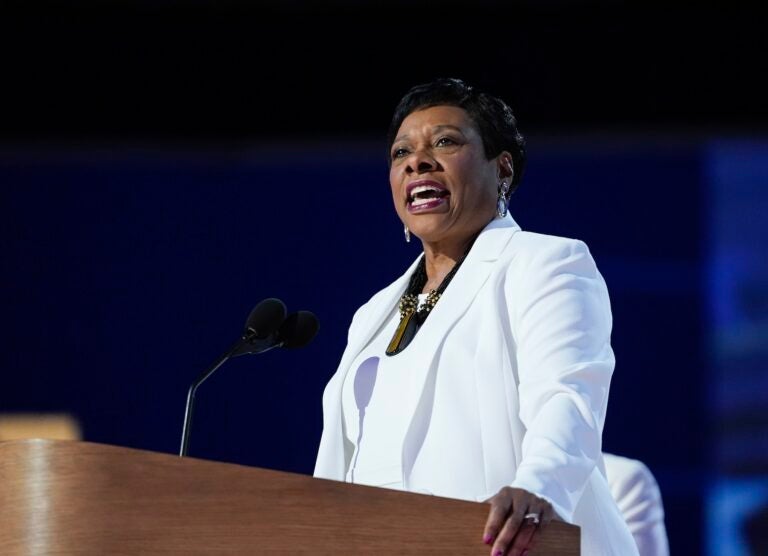
President of the National Education Association Becky Pringle speaks during the Democratic National Convention Thursday, Aug. 22, 2024, in Chicago. (AP Photo/Paul Sancya)
Philly born
Related content.

‘Almost as serious as breathing’: Philly-area Democrats celebrate Kamala Harris’ nomination at DNC watch parties
Likely Democratic voters in Glenside and Manayunk celebrated Vice President Kamala Harris’ shot at the White House.
Partisan politics

On school vouchers

Biden cancels speech at teachers union convention in Philly after union staff goes on strike
Biden, who is fighting to save his endangered reelection effort, was still planning to travel to Pennsylvania over the weekend, his campaign said.
2 months ago
Lockout in Philly
It might be surprising that the nation’s largest union recently locked out its striking staff union, but that’s what happened recently. The battle spilled into the political world, even impacting a presidential visit to Philly.
Last month, the city hosted the 2024 NEA Representative Assembly. Shortly before the event, however, the National Education Association Staff Organization (NEASO), which represents about 350 members of the staff who work for the NEA, went on strike over an impasse in budget negotiations. The staff decided to stage a walkout.
It was an unprecedented move that threatened a public relations embarrassment for the nation’s largest union, which was made all the more profound by plans for President Joe Biden to speak at the convention. Biden, long seen as a friend to labor and labor unions, wouldn’t cross the picket line and found somewhere else to speak.
In retaliation, the NEA locked its staff out of work.
Pringle wouldn’t say much about the event, likely the result of the fact that the two sides had come to a tentative agreement by then and were under gag order not to discuss it.
“We at the NEA have been bargaining good faith like we always do with our unions, and we now have a tentative agreement and we are excited to focus on the election, on the work of our members, on our mission, and on what our students need for us to do to ensure that they all have what they need and they deserve,” she said, adding that their teacher members have had other opportunities to engage with Biden and Harris.

Get daily updates from WHYY News!
The free WHYY News Daily newsletter delivers the most important local stories to your inbox.
WHYY is your source for fact-based, in-depth journalism and information. As a nonprofit organization, we rely on financial support from readers like you. Please give today.
Part of the series
Elections 2024.

Pennsylvania Education
Education stories from across the Keystone State.
You may also like
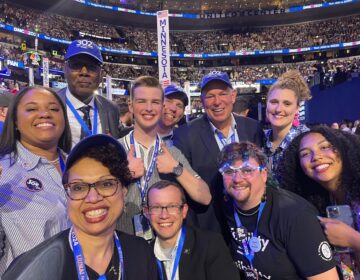
‘Black women in power’: Delaware delegates’ role in nominating first Black woman for president
Delaware’s delegates say the visible leadership role for Black women across the convention is the result of decades of work in their communities.
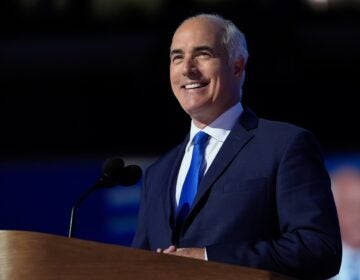
DNC wraps up as Sen. Casey talks ‘greedflation,’ other Pa. pols reflect on the week
Sen. Bob Casey had his moment at the Democratic National Convention. Other Pennsylvania politicians say Kamala Harris and Tim Walz are bringing joy to the campaign trail.
About Carmen Russell-Sluchansky
Carmen Munir Russell-Sluchansky is WHYY News' multiplatform reporter, politics.

Want a digest of WHYY’s programs, events & stories? Sign up for our weekly newsletter.
Together we can reach 100% of WHYY’s fiscal year goal
'Bad Monkey's Ronald Peet Describes Working With Crystal The Monkey: "Crystal Was Teaching me How to Act"

Your changes have been saved
Email is sent
Email has already been sent
Please verify your email address.
You’ve reached your account maximum for followed topics.
The Big Picture
- Collider's Steve Weintraub talks to Bad Monkey' s Ronald Peet about Apple TV+'s series Bad Monkey .
- Peet discusses his experience working with Crystal, the monkey, praises Vince Vaughn's mastery over comedy, the show's rich stories, and the collaborative atmosphere on set.
- Maintaining a positive attitude during hectic shoots, Peet values the show for balancing entertainment with ecological messages.
Who could guess that one of the more experienced actors on the set of Apple TV's new series would be a monkey? In Bill Lawrence 's Bad Monkey , we meet Driggs, a mischievous monkey who causes a headache for Vince Vaughn 's Andrew Yancy, a former police officer seeking glory by solving a murder. Alongside Driggs are the oddball locals that make Yancy's investigation more bizarre and comical than ever in this comedy series. The show's stellar ensemble cast also includes Michelle Monaghan ( The Family Plan ), L. Scott Caldwell ( The Fugitive ), Rob Delaney ( Deadpool 2 ), Meredith Hagner ( Search Party ), Alex Moffat ( Saturday Night Live ), Natalie Martinez ( La Promesa del Returno ), and Jodie Turner-Smith ( After Yang ).
Collider's Steve Weintraub sits with Ronald Peet (First Reformed), who plays the role of Neville, a companion to Driggs. During their discussion, Peet reveals that the monkey who plays Driggs, Crystal, has decades of experience under her belt and grounded him during his scenes. He also talks about learning from Vaughn's comedic skills, keeping a positive attitude during the hectic shooting schedules, and how he is inspired by the show's ability to be entertaining while delivering important ecological messages. You can hear it all straight from Peet in the video above or follow along via the transcript below.

After getting bounced from the Miami PD, a former detective is demoted to restaurant inspector in the Florida Keys. An unusual new case might get him back in the department if he can get past a trove of oddballs, and one bad monkey.
Why Crystal the Monkey Is the Best Scene Partner
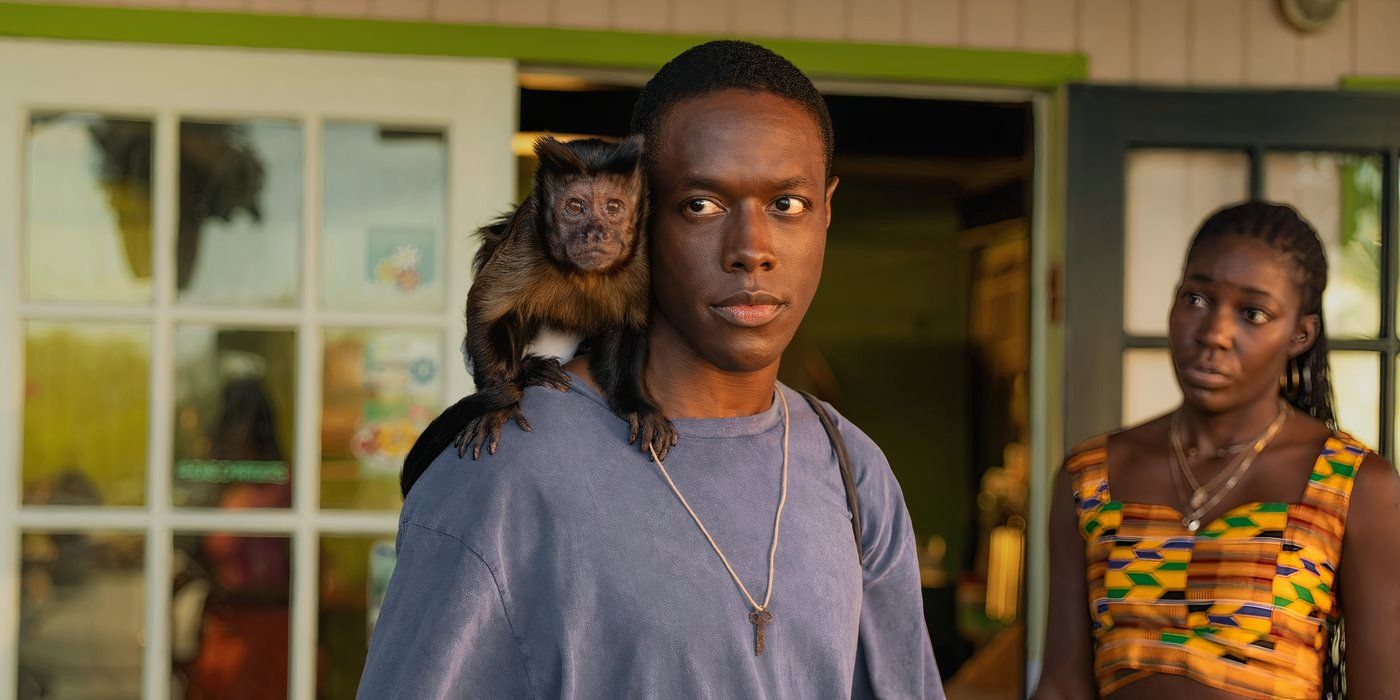
Image via Apple TV
COLLIDER: They always say it's a little risky working with children and animals, but the monkey in this show seemed like he was probably a better actor than everybody combined.
RONALD PEET: I would agree. The monkey that we had the privilege of working with is Crystal, actually. She's a she in the real world but plays Driggs on the show. Crystal has been around in this game for decades now. Crystal was teaching me how to act, quite frankly . My experience with Crystal is that having an animal, and Crystal in particular, so near me — in so many of the scenes, Crystal’s actually on my person, on my body — it had this grounding effect to it. It had an almost Zen, therapeutic effect. So, I was pretty peeved on the days that I didn't have Crystal working with me because I was like, "I'm out here by myself." Crystal is the best scene partner in the world.
Crystal is real good.
PEET: Real good. [Laughs].
Vince Vaughn Is a "Master of the Kind of Comedy He Does"
"it's like looking at the sun when you're around someone who really knows what they're doing.".
I've been a fan of Vince Vaughn for a long time, I'm sure, just like you. The thing about Vince is he has this very unique delivery that is Vince Vaughn . The other kicker is he's incredibly funny, and I could see everyone really laughing in the scenes. What is it actually like working with him, where some of the shit he says is just so good?
PEET: I think it's what you think it would be like. It's exactly that. It's like being on SNL or something, where you're trying not to crack, not to break, because he's a master of the art. He's a master of the kind of comedy that he does . It felt like a masterclass every time I did a scene with him. I haven't always fancied myself a comedian, but it's like looking at the sun when you're around someone who really knows what they're doing.
What was the take that you absolutely ruined from laughing?
PEET: [Laughs] I don't think that I had one where I really broke because I am a stoic by nature, but inside, I was definitely cracking up every time.
Oh, so you're not taking credit for any ruined takes?
PEET: I will not take credit for any ruined takes. I will take credit for other things, though. [Laughs].
I'm gonna ask Bill about this.
Ronald Peet Survived the 'Bad Monkey' Gamut by Just Saying Yes
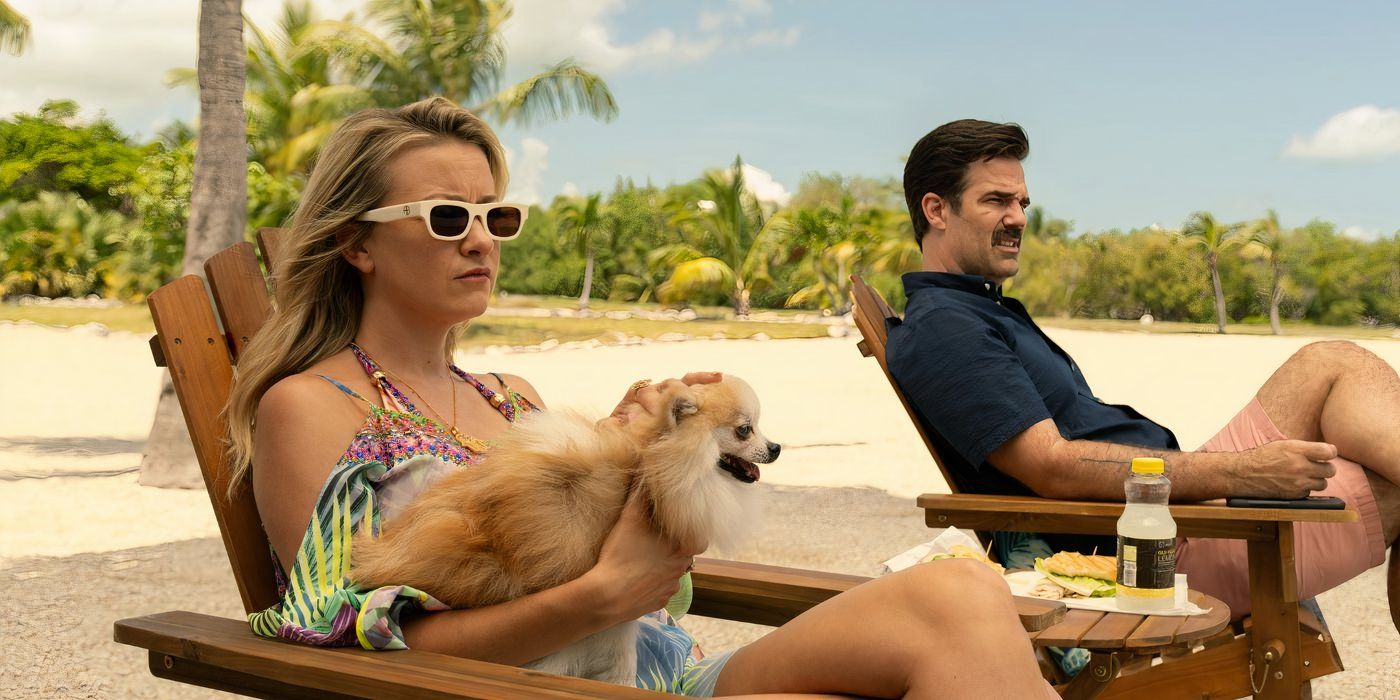
You see the shooting schedule in front of you. What is the date you have circled in terms of, "I cannot wait to film this," and what's the day you have circled in terms of, "How the F are we gonna film this?"
PEET: That's a great question. With this one, my character, Neville, really runs the gamut of things he gets to do. He's on the water, he's on the ground, he's in moving vehicles, he's dealing with the occult, he's dealing with these developers, white supremacist delusion, and all different elements. Every single day it was like, "Put my helmet on." There wasn't really one day I went to work where I was just chilling.
Was there a day that you were like, "How the F are we gonna film this?"
PEET: There is an element of that most days, to be honest. But like I said before, I just said, “Yes.” I just had a “yes” attitude to everything.
What was it like the night before the first day of filming for you? Are you in your head? Are you second-guessing everything? Are you debating the accent? What's going on?
PEET: I think all of the above. Luckily for me, I do a lot of yoga, I run marathons, and I have a pretty robust meditation practice. There are a lot of variables running through my head, but mostly at the forefront of it, I was like, “Hey, if you're here, if you got this job, it means that you belong here. So just have fun, be present, and let it roll.”
Are you able to sleep that night or are you like looking at the clock all night?
PEET: I wasn't looking at the clock all night. I was checking in.
'Bad Monkey' Balances Storytelling With an Ecological Message
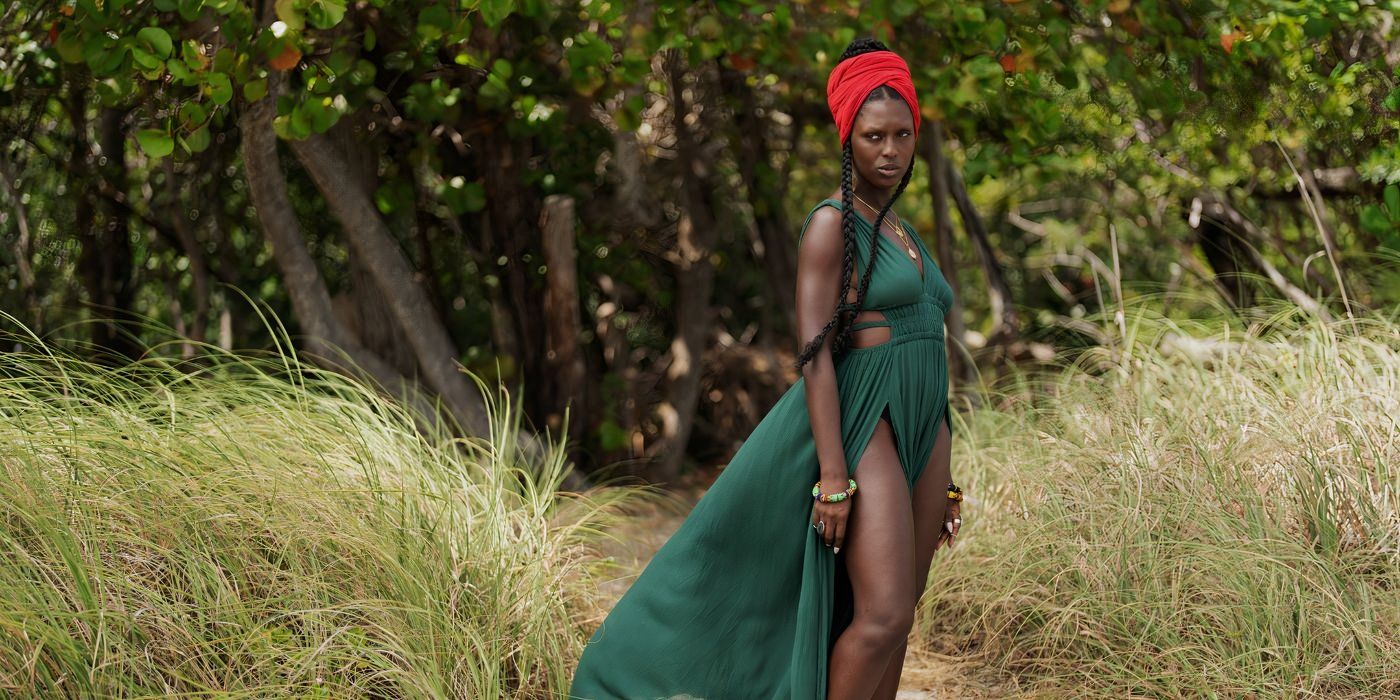
One of the things I really enjoyed about the show is it's not preachy, but it talks about conservation. Can you talk about that aspect of the show?
PEET: That's one of the elements of the show that really attracted me. I like stories — I won't say "stories with a message" — but I was a philosophy double major in school, and I think that there's a responsibility sometimes, even in storytelling, to be in conversation with what's actually happening in the world. So, I love that there's an ecological message that isn't preachy whatsoever, but it's just part of the truth of what Andrew Yancy, Vince Vaughn's character, and Neville Stafford, my character, are dealing with. There's Yancy in Florida dealing with the red lights and conservation around the turtles and the deer and the wildlife, and my character, Neville, is also dealing with these developers coming in and threatening the natural ecosystem there. I think that's so rad to be able to deal with what's actually happening in the world while entertaining and telling a story.
I completely agree.
Ronald Peet Praises His 'Bad Monkey' Co-Stars
"everybody is doing such phenomenal work.".
The show has 10 episodes — which is your favorite and why?
PEET: No, no, no. Every single one is my favorite. [Laughs].
Sometimes, there are certain episodes where you have bigger scenes than others, so there might be one.
PEET: I'll actually say this: I didn't get to see a lot of the other actors and the other storylines while I was working because we were kind of atomized. So, my eyes were so big and my mouth was agape when I was watching the first two or three episodes because I think everybody is doing such phenomenal work. I'm not biased, I just think everyone's doing such wonderful work. I was super excited to watch every single episode because of all of the other stories, aside from Neville's storyline, that are so full and honest. The cinematography is so juicy and delicious. I'm a fan of the show. Aside from my involvement, I'm a real fan of it.
What you're wearing as an actor really informs the character you're playing. Talk a little bit about collaborating with Heidi [Higginbotham] on the costumes. Was there anything that you brought in that really helped? What is that collaboration like?
PEET: Every aspect of this show, from Heidi to Bill to Vince, was super collaborative and so creative. Neville's attire had everything to do with how I got to access Neville's character. Neville is so close to the ground and Neville is so close to the ocean. Neville is wearing these tank tops and these oversized [clothes]. He has this key that I remember us collaborating on. We created a real backstory about the key being connected to his father, who had passed. Little things like that went a long way to keep me in the reality of the fiction that we were making. But Heidi was so open to every idea that I had. I feel really blessed to be able to say that.
The first two episodes of Bad Monkey are available to stream on Apple TV+ with subsequent episodes dropping every Wednesday.
Watch on Apple TV
TED Talks Education
As a country, how can we better inspire our students — and support our educators? To explore ideas, TED, WNET, PBS and the Corporation for Public Broadcasting teamed up for a brand-new one-hour special, funded by CPB's " American Graduate: Let's Make It Happen. " TED Talks Education was an exhilarating night of talks hosted by John Legend.
Rita F. Pierson
An educator since 1972, Rita F. Pierson says teacher-student connections are the key to keeping kids on track. Watch the talk
Ramsey Musallam
Chemistry teacher and host of the internet show Infinite Thinking Machine, Ramsey Musallam perplexes students -- in a good way. Watch the talk
Angela Lee Duckworth
Psychologist Angela Lee Duckworth studies grit, that little-understood factor which allows some kids to succeed, regardless of IQ. Watch the talk
The legendary technologist now focuses on philanthropy, looking for innovations to tackle the world’s toughest problems. Watch the talk
Geoffrey Canada
A passionate and outspoken education reformer, Geoffrey Canada spent 30 years running the Harlem Children’s Zone. Watch the talk
Malcolm London
A young poet and activist from Chicago, Malcolm London was called the Gil-Scott Heron of this generation by Cornel West. Watch the talk
Pearl Arredondo
Pearl Arredondo established a pilot middle school that teaches students to be good communicators in the 21st century. Watch the talk
John Legend
John Legend performs the song "True Colors," giving the lyrics extra resonance for both teachers and students.
Sir Ken Robinson
The most-watched speaker on TED.com, this author, educator and creativity expert challenges us to radically rethink school systems. Watch the talk
Host: John Legend
The nine-time grammy winner works to break the cycle of poverty through the show me campaign, dedicated to education for all., from the blog.

7 talks for inspiring transformed curriculums

Meet five New York high school students with fascinating stories
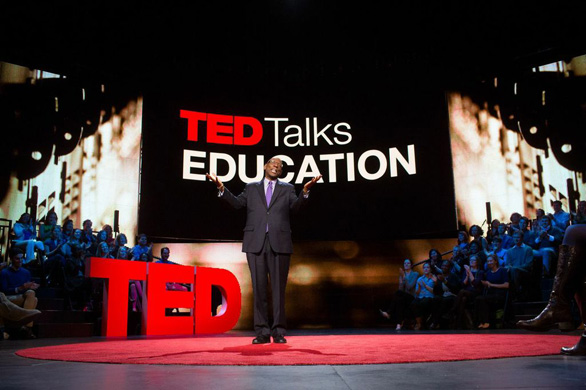
Playlist: 7 education ideas from unlikely places

Join the conversation about #TEDTalksEd

TED Talks Education, hosted by John Legend, premiered May 7, 2013 on PBS. Watch full-length versions of talks from the show right here. Watch the one-hour special on PBS.org

Join the community on TED-Ed
TED-Ed is excited to launch a new section of the TED-Ed website called “TED-Ed Community.” The new area provides a dynamic space where teachers, students, and learners of all backgrounds can pitch lesson ideas and participate in a conversation about TED-Ed and Education at large. Visit the TED-Ed community

Episode: Unstoppable Learning
In this week's episode of TED Radio Hour, we explore why we — adults — assume learning must be taught, tested and reinforced. Listen now

Connection makes learning stick
Sometimes it's so simple. Longtime educator, Rita Pierson, fired up the TED stage with this no-nonsense talk about how the secret to learning is right in front of us and shares a moving essay on TEDWeekends on the power of the human connection in the classroom. Pearson's humor is as potent as her prose. Read her op-ed

COMMENTS
Video playlists about Education. 17 talks. The Butterfly Effect: Talks from the TEDinArabic Summit. In March 2023, 17 speakers from across the world gathered in Doha for the inaugural TEDinArabic Summit. From climate change and politics to sports and fashion, enjoy this sweeping selection of talks. 15 talks.
5. The Nerd's Guide To Learning Everything Online by John Green. John Green's Talk, from November of 2012, has been viewed roughly 2.8 million times on the Ted Talks website and does not appear to have been published on YouTube. Green takes a little bit of time to get to the point.
TED-Ed's Educator Talks program brings educators (teachers, principals, Ed consultants, CEOs, nonprofit leaders and industry trailblazers) to consider and share the most relevant and transformational ideas in the education landscape across the globe. All of the educators featured are developed, coached and curated through TED's coaches to deliver their ideas on the TED stage.
Ken Robinson: 10 talks on education. Education legend Sir Ken Robinson picked the talks he loves — all full of insight, bright ideas and, of course, creativity. Watch now.
When education is not a given: 10 inspiring talks. From age 6 through age 11, Shabana Basij-Rasikh risked her life to go to school. The Taliban had banned girls in Afghanistan from studying at universities and other educational institutions and, thus, Basij-Rasikh dressed as a boy, posing as an escort for her older sister.
Learn how artificial intelligence could revolutionize education from Sal Khan, the founder and CEO of Khan Academy, in this inspiring TED talk.
5 game-changing TED Talks about education. By Cynthia Silva on July 3, 2018 in TED-Ed Lessons. All over the world, there's growing consensus that our education systems are broken. Here are 5 TED Talks from educators who want to transform how students are taught: 1. Salman Khan.
Teachers in Finland teach 600 hours a year, spending the rest of time in professional development. In the U.S., teachers are in the classroom 1,100 hours a year, with little time for feedback. "A key to that is education. Finns do not really exist outside of Finland," says Sahlberg.
Takaharu Tezuka: The best kindergarten you've ever seen. At this school in Tokyo, five-year-olds cause traffic jams and windows are for Santa to climb into. Meet: the world's cutest kindergarten, designed by architect Takaharu Tezuka. In this charming talk, he walks us through a design process that really lets kids be kids.
10. Dena Simmons: How Students of Color Confront Imposter Syndrome. Students learn best when they can be themselves. Simmons shares insight into how to support students of color in the classroom. 11. Carol Dweck: The Power of Believing That You Can Improve. Discover how a growth mindset can boost student achievement.
2. Takaharu Tezuka: The best kindergarten you've ever seen This TEDxKyoto talk is a top pick among TED-Ed Club Members. An Ji Soo, a high school student from China, says that it made her "think about the nature of education and have a critical view of it." 3. Drew Dudley: Everyday leadership TED-Ed Club Members love this funny talk.
TED's youth and education initiative, TED-Ed, aims to spark and celebrate student ideas around the world. The TED-Ed Student Talks Program supports students in discovering, exploring and ...
TED-Ed lessons on the subject Teaching & Education. TED-Ed celebrates the ideas of teachers and students around the world. ... TED Talk Lessons TED-Ed Best of Web Back; Video duration0. Under 3 minutes ... The best kindergarten you've ever seen - Takaharu Tezuka. Lesson duration 09:52 1,451,281 Views. 07:11. Social Studies ...
9. Shimon Schocken: The self-organizing computer course. 10. Ken Robinson: Changing education paradigms. 10 Of The Best TEDTalks On Improving Education. TeachThought Staff. TeachThought is an organization dedicated to innovation in education through the growth of outstanding teachers. 5.5 Data-Supported Twitter Best Practices.
100+ collections of TED Talks, for curious minds. TED Series. Go deeper into fascinating topics with original video series from TED. TED-Ed videos. Watch, share and create lessons with TED-Ed. ... TED's youth and education initiative. Watch now. Add to list. 04:27. Ann-Helén Bay. Why is it so hard to escape poverty? 4 minutes 27 seconds. 04:41 ...
Here, talks from teachers you'll wish you had. Watch now. Add to list. 07:34. Rita Pierson. Every kid needs a champion. 7 minutes 34 seconds. 13:13. Olympia Della Flora. Creative ways to get kids to thrive in school. 13 minutes 13 seconds. 12:28. Kris Alexander. How video games can level up the way you learn.
Why Representation Matters in Our Schools. . 3. How Great Leaders Inspire Action. Influential leaders inspire others by starting with "why" rather than "what" or "how." British-American author and thought leader Simon Sinek's lecture is the third most watched TED Talk of all time with 34 million viewers.
The LXD: In the Internet age, dance evolves (17:13) The LXD (Legion of Extraordinary Dancers) believes that dance can have a transformative effect on the world. Their stunning street dance performance makes for a TED Talk video students will want to watch again and again. Fans of Glee and So You Think You Can Dance may see some familiar faces.
In this Ted Talk, Bill Gates: Teachers need real feedback, Gates talks about the need for teachers to receive valuable feedback so that they can improve and strengthen their skills and become better teachers.He brings the teaching field to technology and cameras, using video to share and promote better and more effective teaching. 5. Bring On the Learning Revolution!
1. The Power of Resilience. Resilience is the ability to bounce back from challenges stronger than before. In your TED Talk, explore how resilience can help you overcome academic and personal challenges and share strategies to build this essential skill. 2. The Science Behind Procrastination.
There needs to be an education system that nurtures rather than undermines creativity, he argues. This is ranked as one of the most popular TED talks not only for the quality of the information but for Robinson's gift of entertaining while delivering that information. 8. Grit: the power of passion and perseverance.
In this 2-credit course, you will find out how TED Talks go beyond the inspiring, thought-provoking talks around ideas worth sharing. TED Talks have a place in the educational setting as teachers find ways to bring the elements of TED Talks into the classroom as viewable content, learning activities, and lesson plans.
As president, Donald Trump's pick to run the Department of Education, Betsy DeVos had argued that the agency she ran shouldn't even exist. Becky Pringle, president of the National Education Association, speaks during the Democratic National Convention Thursday, Aug. 22, 2024, in Chicago. (AP Photo/J. Scott Applewhite) On school vouchers
CAIRO (Reuters) - Palestinian militant group Hamas is sticking to a July 2 Gaza ceasefire proposal, rejects new Israeli conditions for a ceasefire and says talk of an imminent deal is false, group ...
Collider's Steve Weintraub talks to Bad Monkey's Ronald Peet about Apple TV+'s series Bad Monkey.; Peet discusses his experience working with Crystal, the monkey, praises Vince Vaughn's mastery ...
Video playlists about Teaching. 18 talks. Talks from inspiring teachers. A great teacher can change the trajectory of your life. Here, talks from teachers you'll wish you had. 8 talks. When school's out for the summer. Keep the brain sharp and engaged with these talks that make it fun to avoid the "summer slump."
Later, Delaware Senator Chris Coons - one of Mr Biden's closest allies - took his turn singing the president's praises. "I've never known a more compassionate man than Joe Biden," he ...
TED Talks Education, hosted by John Legend, premiered May 7, 2013 on PBS. Watch full-length versions of talks from the show right here. Watch the one-hour special on PBS.org. Join the community on TED-Ed. TED-Ed is excited to launch a new section of the TED-Ed website called "TED-Ed Community." The new area provides a dynamic space where ...